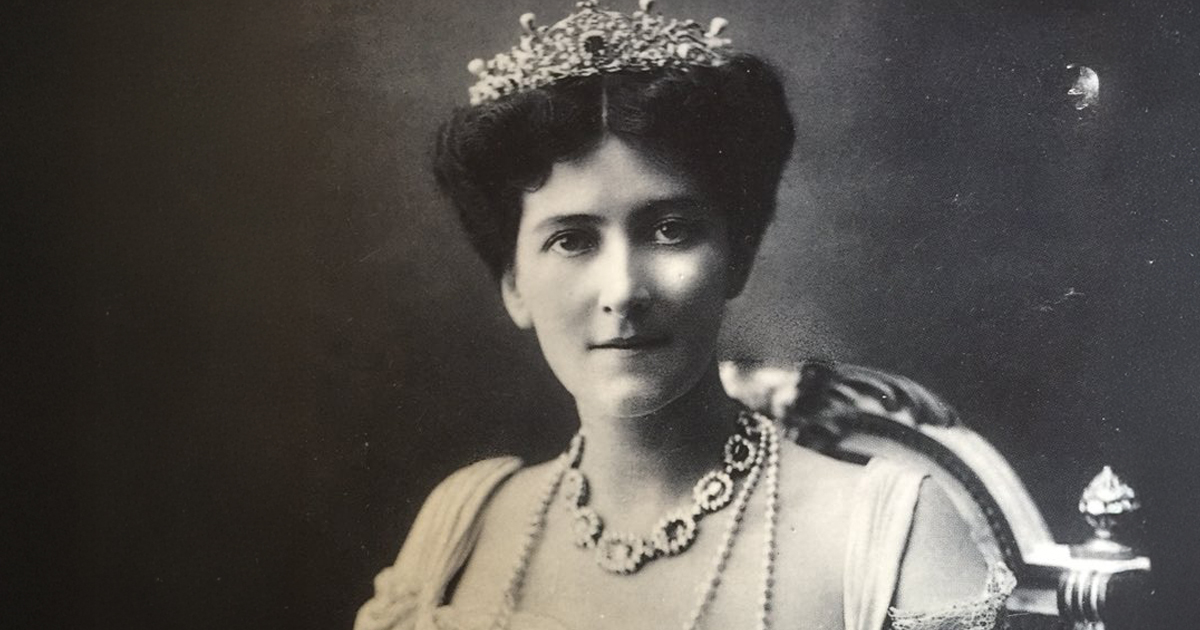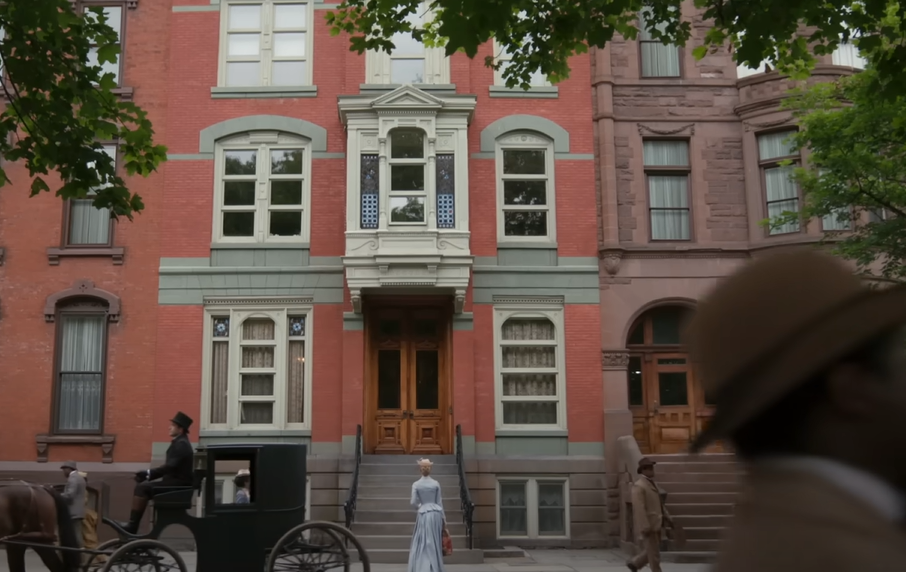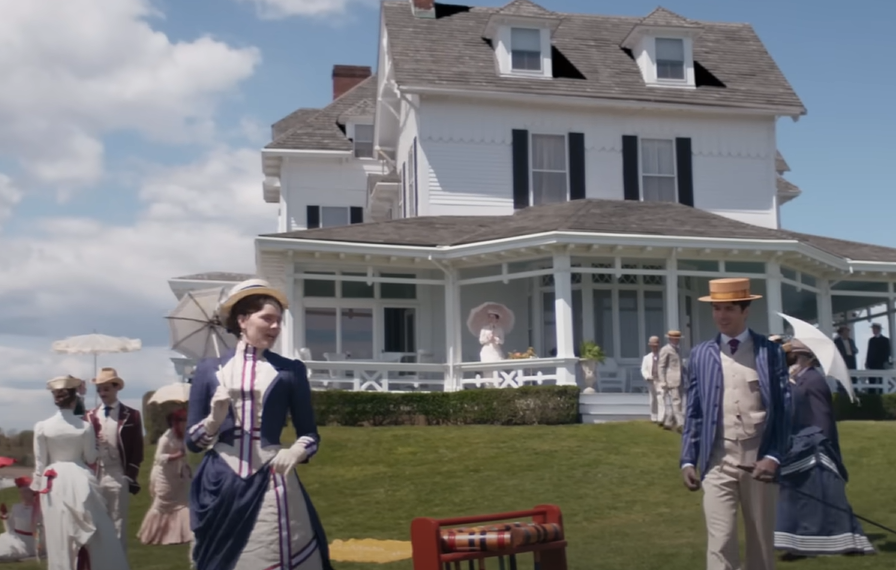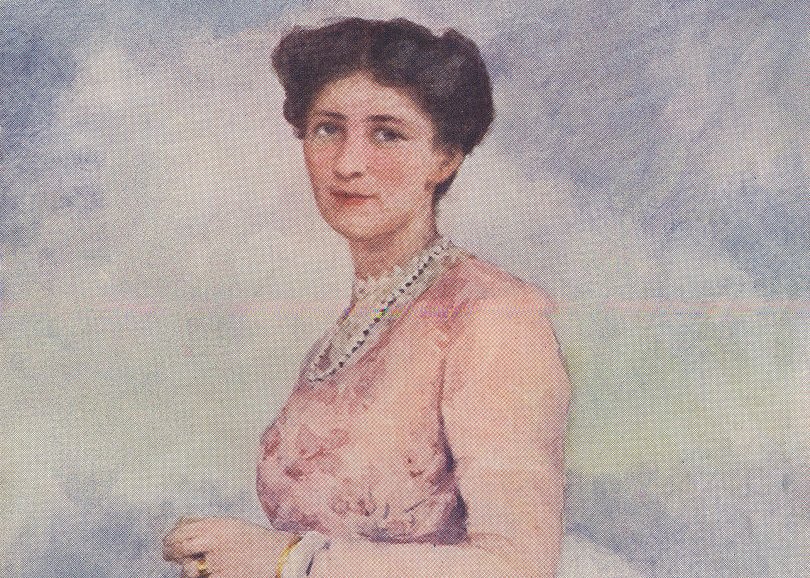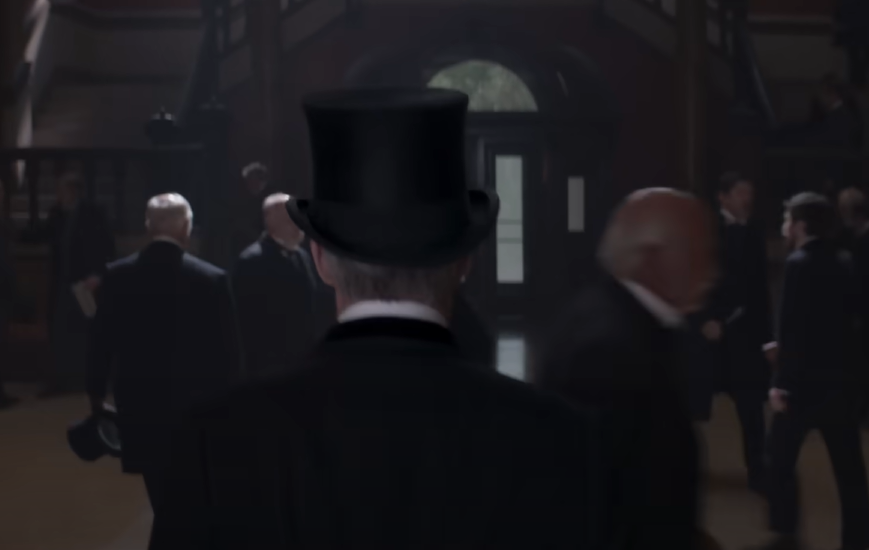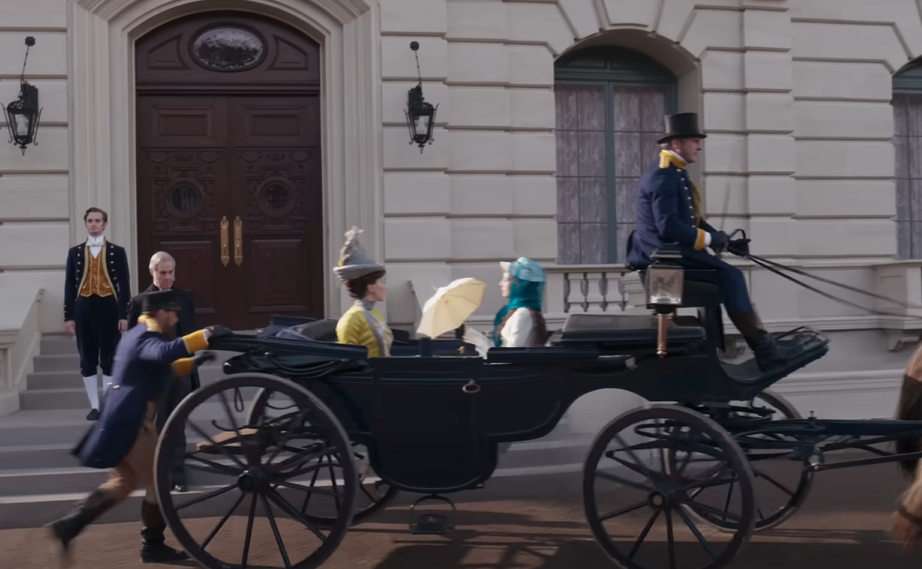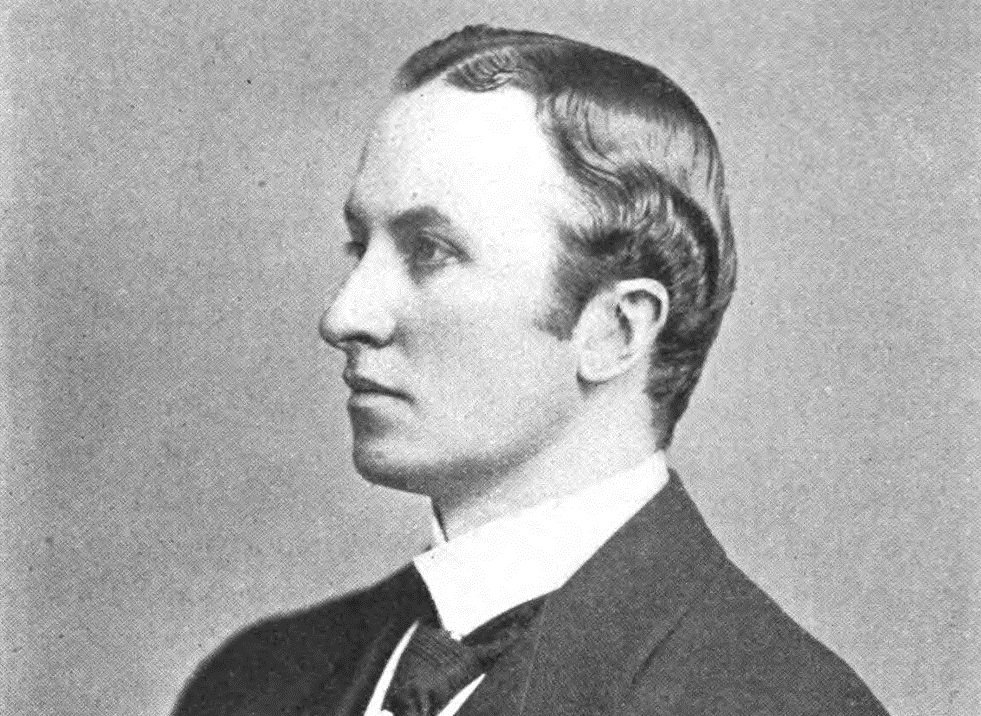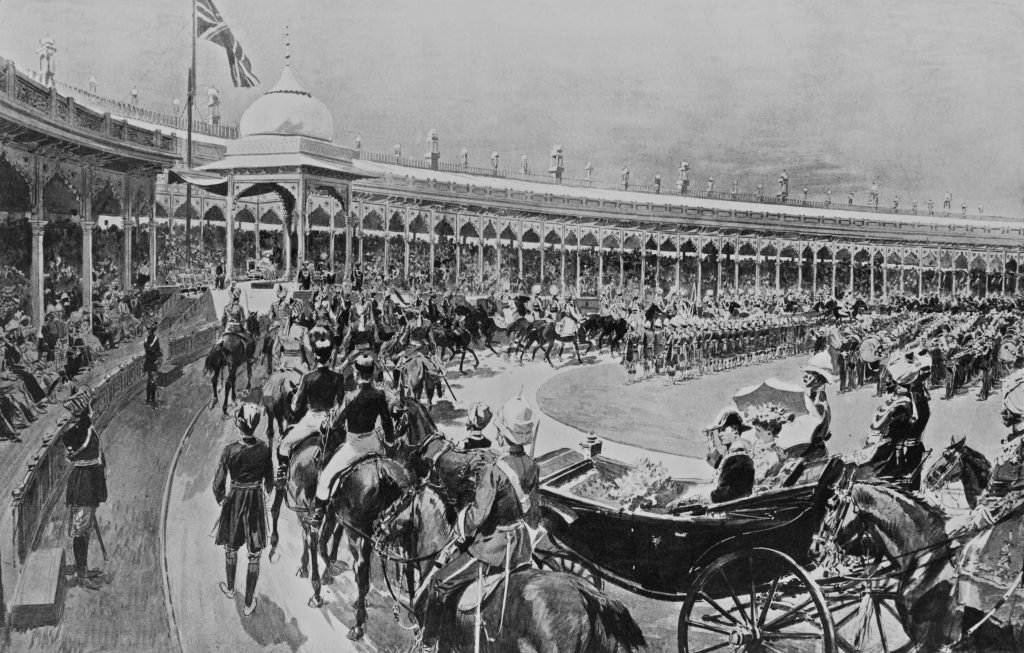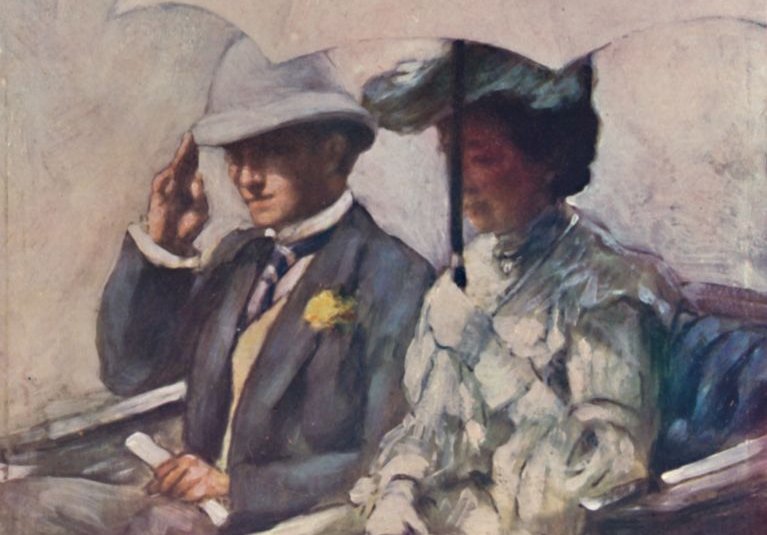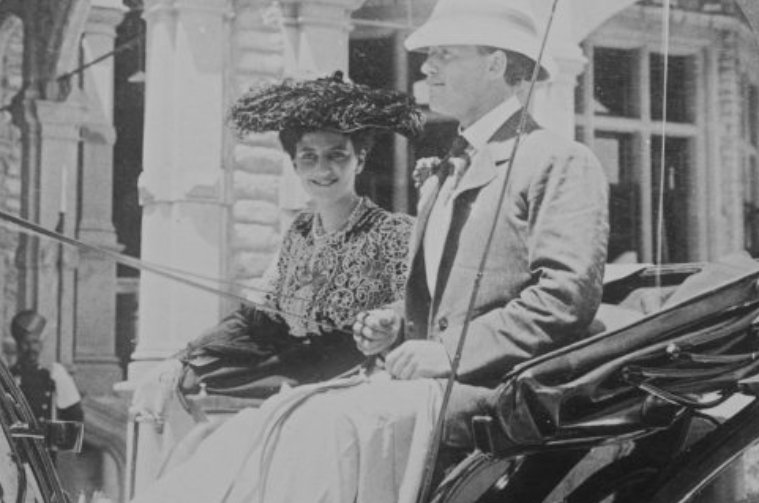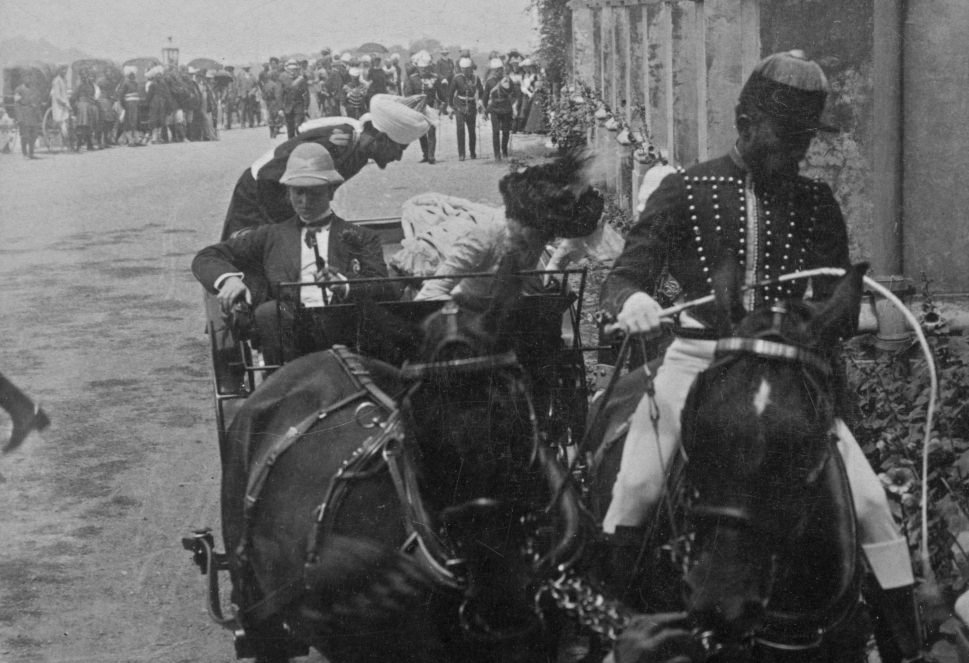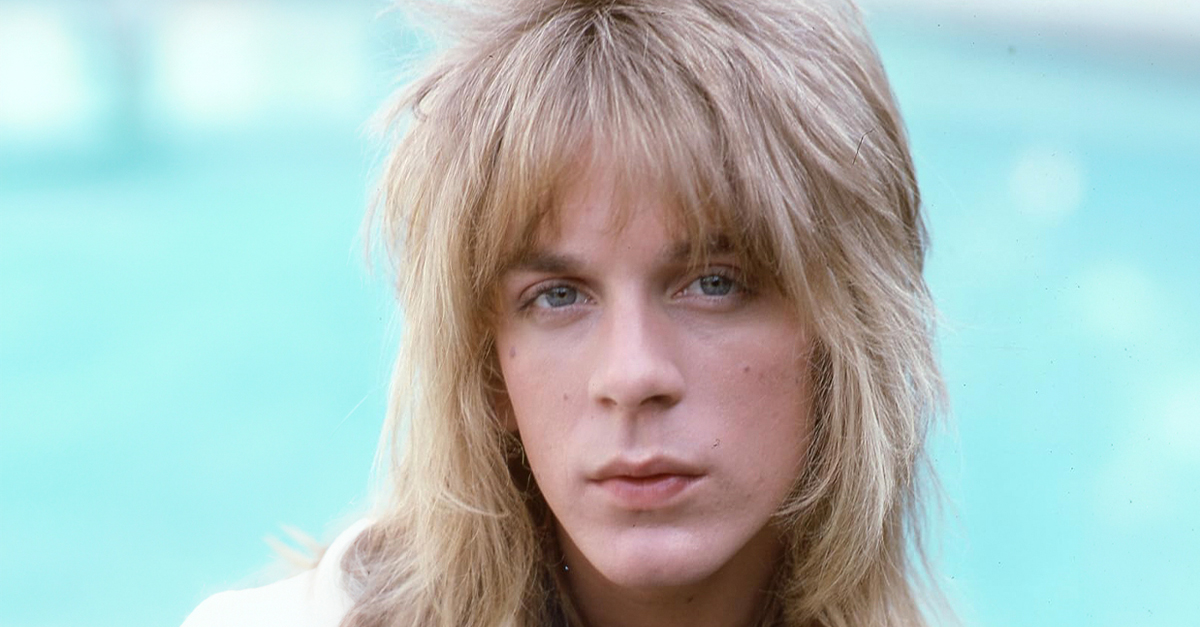True American Royalty
Of all the “Million Dollar Princesses” from America’s gilded age who married into the old European aristocracy, it was Mary Curzon who achieved the highest rank of all. Although she began as new money, mercantile stock, she rose to the high and controversial title of Vicereine of India—and then ended her life decades too early, in heartbreaking misery.
1. She Was Born Into The 1%
Mary was born Mary Victoria Leiter in 1870 to one of the wealthiest families in Chicago. Her father Levi co-founded the Field and Leiter dry goods business, as well as had a hand in the Marshall Field department stores. The family lived in a massive mansion on Wisconsin's Lake Geneva, where they moored their steam-yacht Daisy.
But this silver-spoon upbringing wasn't quite as polished as you might think.
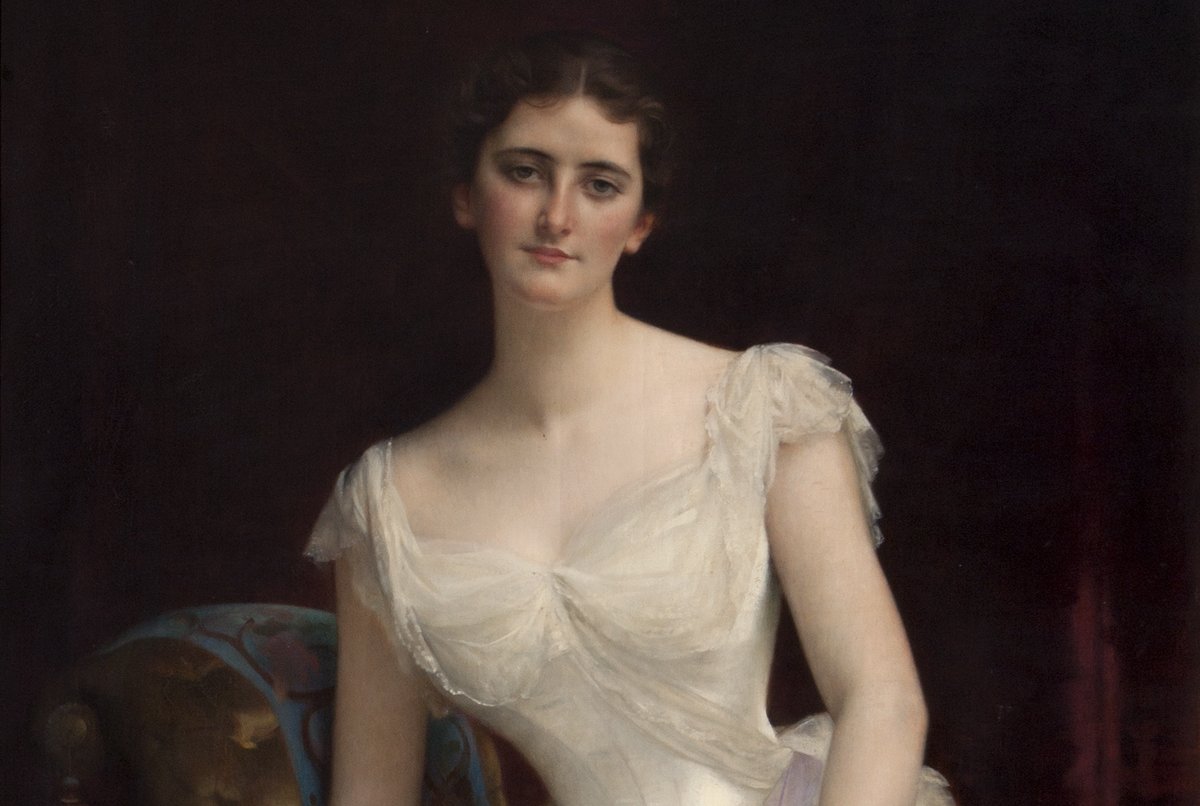 Alexandre Cabanel, Wikimedia Commons
Alexandre Cabanel, Wikimedia Commons
2. Her Mother Was Ambitious
From a starting young age, immense pressure was put on Mary to be perfect, prim, and presentable. Even though the Leiter's were already influential around Chicago, Mary’s mother harbored dreams of even greater social success, especially if her daughter could catch a high-ranking husband.
And she went to great lengths to make sure it would happen.
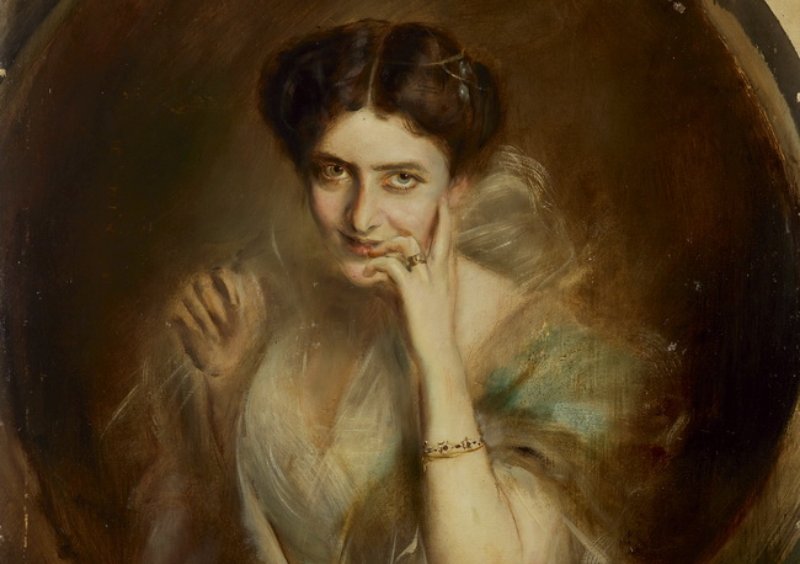 Franz von Lenbach, Wikimedia Commons
Franz von Lenbach, Wikimedia Commons
3. Her Whole Life Was Controlled
Serious and thoughtful, Mary tried her best from her young girlhood onward to obey her parents’ every whim. But this control knew no bounds. Her family even told the shy girl who she could be friends with, and pulled together a coterie made up of all the scions of the best families nearby.
But this intense control had an alarming effect on Mary.
4. She Was Odd
Growing up as she did in this hothouse atmosphere, Mary turned into a strange child—someone even the people in her household struggled to connect with. She could be eerily serene one moment, pensive but almost haughty the next, and then in the last moment she would be overcome with a fit of jealousy.
Yet for all these faults, she did have one major asset.
5. She Was A Great Beauty
From her adolescence onward, one thing was clear about Mary. She was an oddly captivating beauty. As one admirer put it, “She was serious and earnest rather than scintillating”, but this earnestness was its own charm, especially when combined with her oval face, pale skin, and dark hair. It wasn’t long before the men in her circles began to take notice.
6. She Had An Early Romance
Like all well-to-do families of the time, the Leiter's spent a great deal of time in Europe, particularly in the fashionable city of Paris, and often took Mary along to better expose their daughter to culture and introduce her to society. While on one trip there, she caught the eye of a man named Edward Morrell, who immediately began courting her.
Yet their relationship contained hints of problems that would later plague Mary.
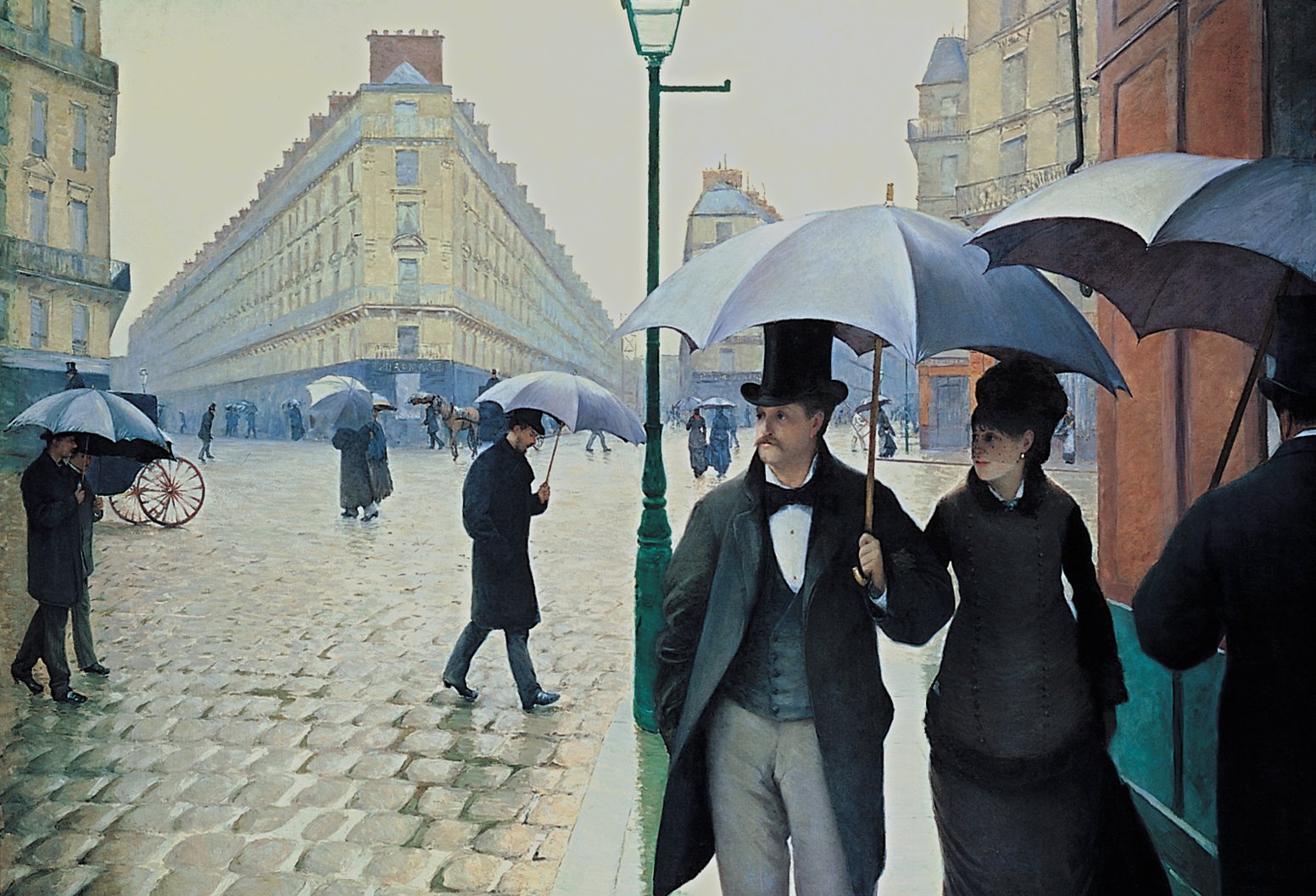 Gustave Caillebotte, Wikimedia Commons
Gustave Caillebotte, Wikimedia Commons
7. Her Lover Got Jealous
Mary and Edward went on several chaste dates—including a trip to the circus chaperoned by Edward’s sister—but Edward quickly showed a dark side. When Mary confessed homesickness for America, he jealously fought with her, insisting she didn’t care for him.
Not for the first time, someone had thought that Mary’s always-placid exterior revealed a cold interior. But she quickly proved otherwise.
8. She Forgave Too Easily
Edward soon apologized for his outburst, sending pink roses the very next day with a message on the card that said, “Forgive, that in heaven ye may be forgiven”. As mildly threatening as this message was, Mary instantly did so. Displaying an ease with mercy that would not always be kind to her, she took Edward back into the courtship.
Yet soon enough, she had other things to worry about.

History's most fascinating stories and darkest secrets, delivered to your inbox daily.
9. She Made A Stunning Debut
As Edward apparently had no aristocratic title to his name, he was really only a test-run for Mary’s family to marry her off—and they were now ready to play the game for real. When Mary made her official debut, jaws dropped. Slender and tall—reports put her at somewhere around 5’8”—she appeared to float into ballrooms with her impeccable posture.
In this way, she caught a particularly big fish. It just wasn’t a man.
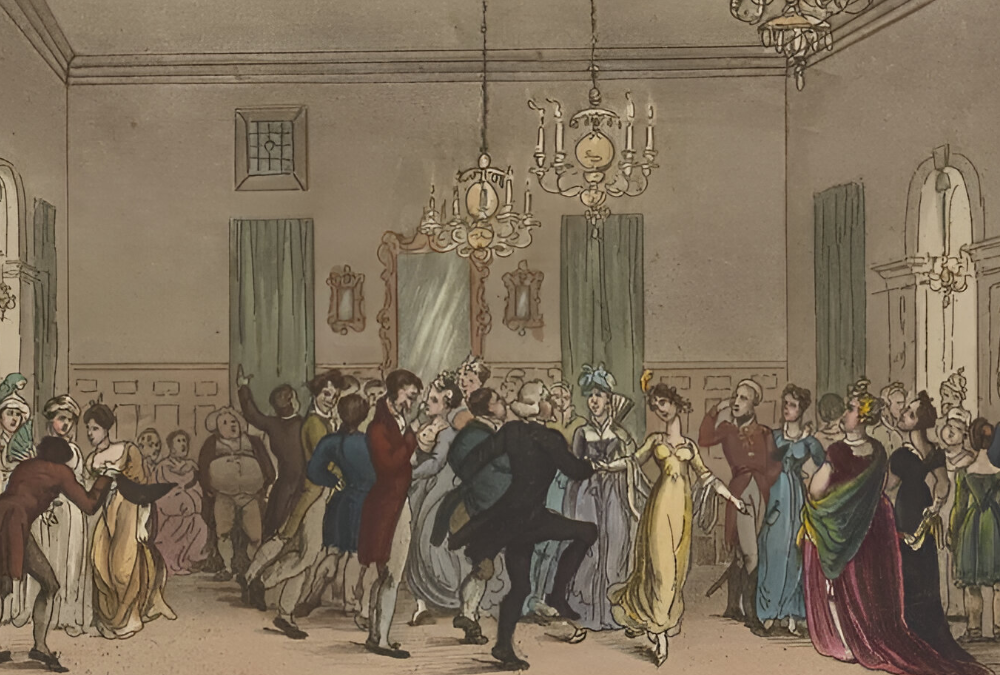 New York Public Library, Picryl
New York Public Library, Picryl
10. She Met A Powerful Friend
During this time, somewhere in the flurry of balls and luncheons, Mary made fast friends with 23-year-old Frances Cleveland, a married society lady several years older than her. But it was who Frances was married to that set tongues wagging: None other than Grover Cleveland, the current President of the United States.
It was a social coup for Mary, and they kept on coming.
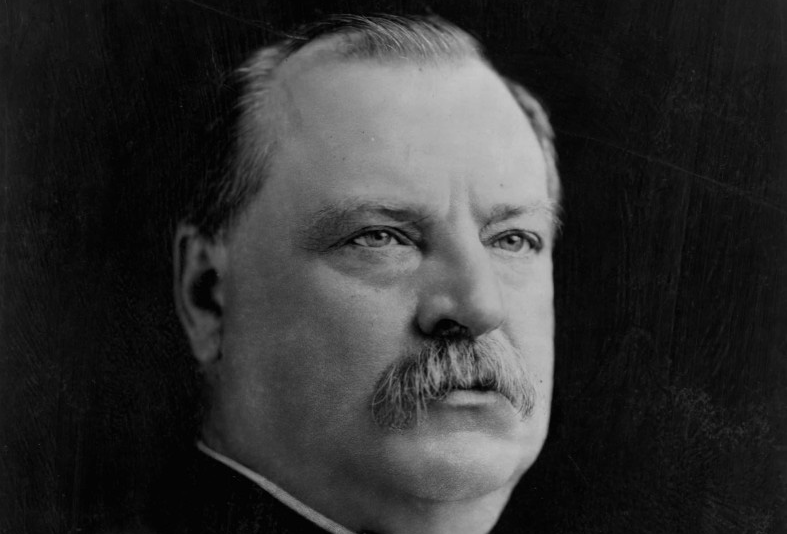 Unknown Author, Wikimedia Commons
Unknown Author, Wikimedia Commons
11. She Won The Society Game
After nabbing The First Lady of the United States as a close personal friend, Mary continued her charm offensive on society. McAllister Ward, confidant of Caroline Astor, the ultimate doyenne of New York City society, anointed Mary as one of his favorites, and even invited her to the next instalment of the exclusive Patriarch ball.
Not that Mary let this get to her head.
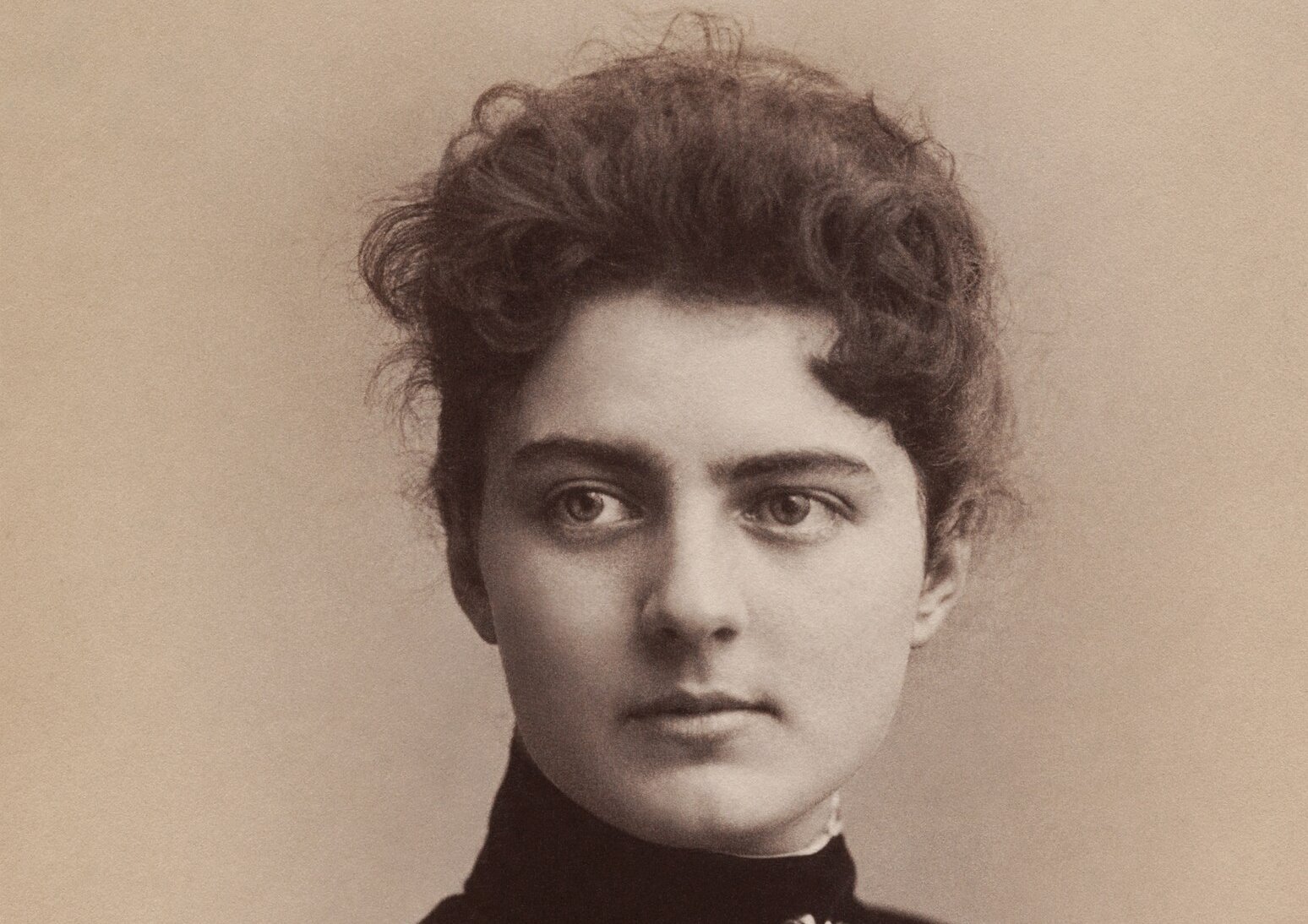 Charles Milton Bell, Wikimedia Commons
Charles Milton Bell, Wikimedia Commons
12. She Stayed Modest
Throughout this, Mary remained almost stubbornly, unnaturally humble about her meteoric rise in society. At one ball, a man whisked her away from a young woman who had been desperate for a dance. Mary spent her time with him explaining that he should have asked the other girl instead of her, which he promptly did.
Then again, some might have seen this behavior as sanctimonious pity—and they would be none too happy about the next event in Mary’s life.
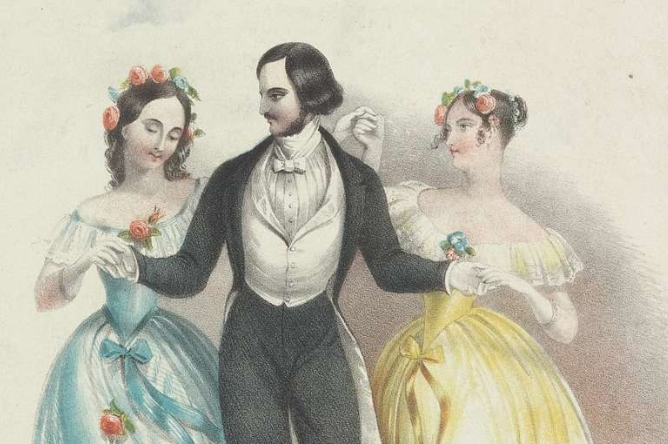 New York Public Library, Picryl
New York Public Library, Picryl
13. She Didn’t Want A Husband
By now, Mary was the toast of any town she entered, and men—and her mother—were salivating at the thought of making her a wife. For a long while, however, Mary resisted these plots, happily enjoying her freedom and flirtation. Until, that is, a man came along that neither Mary nor her family could resist.
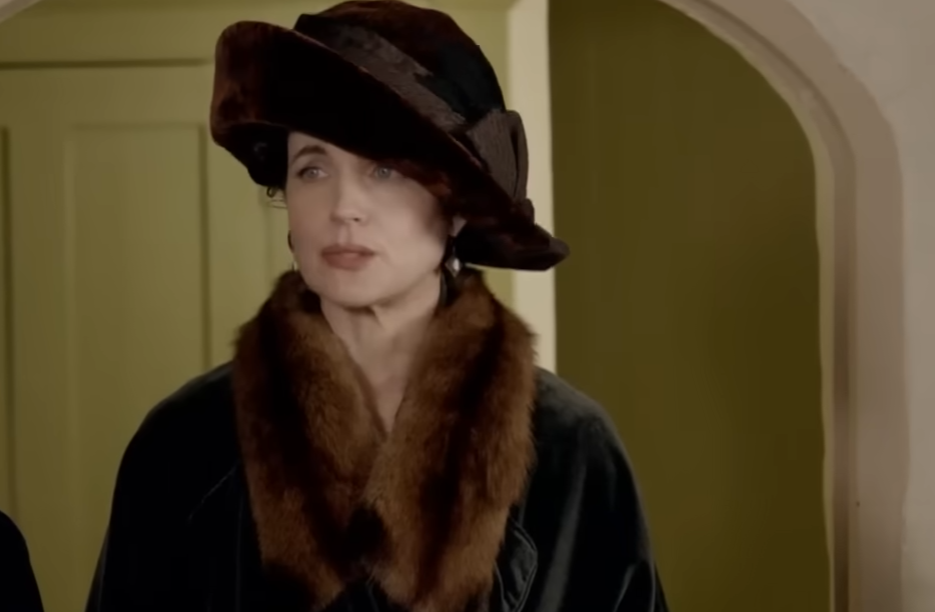 Carnival Film & Television, Downton Abbey (2010-2015)
Carnival Film & Television, Downton Abbey (2010-2015)
14. She Fell In Love At First Sight
Mary met George Curzon, the eldest son of a Baron and a prominent member of the British Parliament, at one of the endless balls she went to. But this time was different. Mary was immediately lovestruck by him, and he would later say “he had never loved Mary Leiter more than at the moment when he first saw her walk into that great assembly”.
But the course of true love never did run smooth—and Mary was about to learn the hard way.
15. She Was Tempted
The next few days passed in a haze for the would-be lovers. They met again at an acquaintance’s impressive English manor house, and when they took a walk in a private garden, George later admitted he “had a strong inclination to kiss” Mary, and had to struggle mightily with the strict propriety of the age not to do just that.
Soon, they were exchanging fevered letters and trinkets—yet in truth, Mary should have been on her guard.
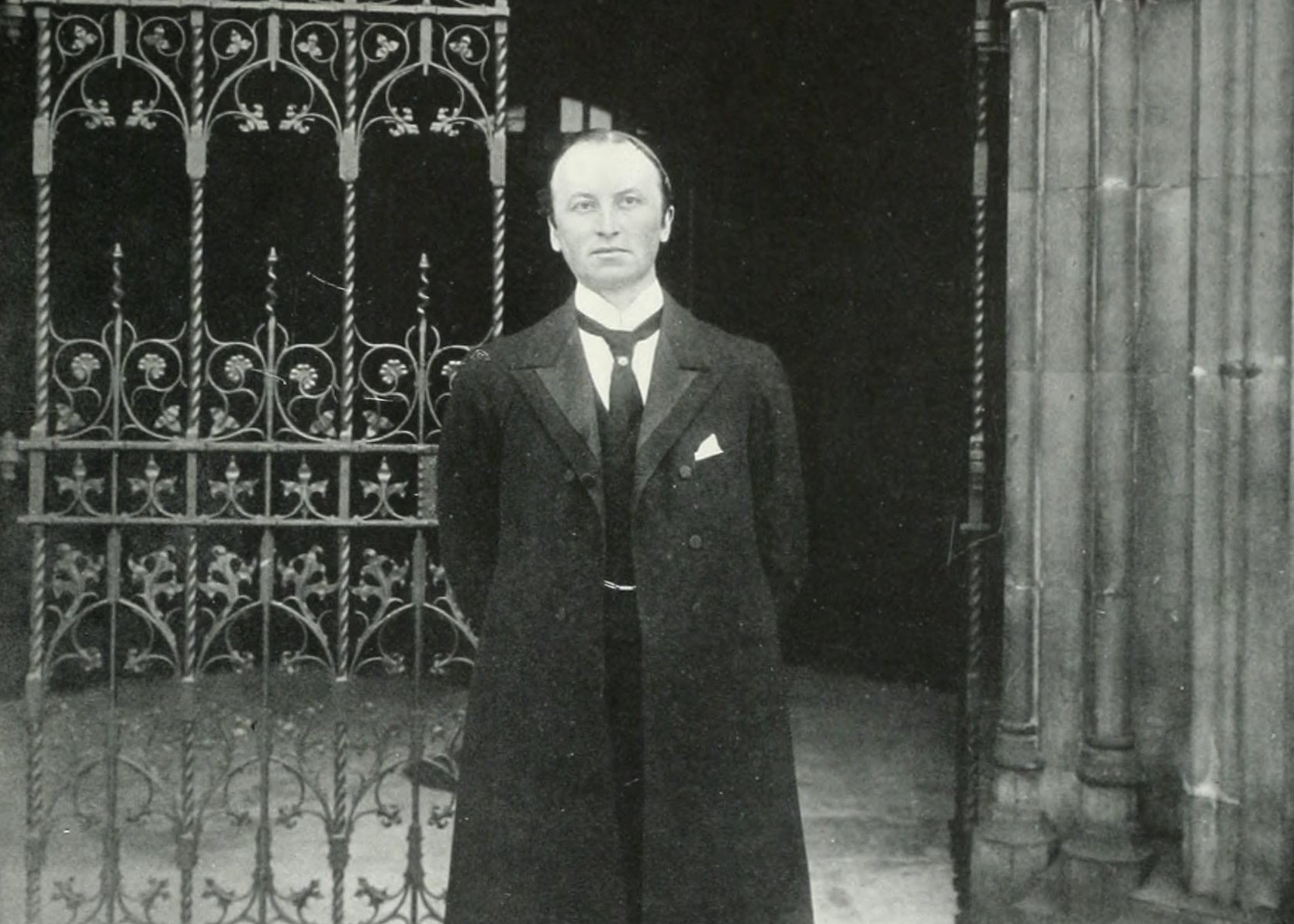 Internet Archive Book Images, Wikimedia Commons
Internet Archive Book Images, Wikimedia Commons
16. Her Beau Was In Constant Pain
Even during this time, George Curzon was hiding a painful secret. Thanks to the incorrect curvature of his spine, he suffered from debilitating agonies. In order to mitigate it, he wore a steel corset with leather padding, but still had difficulty riding or standing for long periods. This, naturally, often made his temper short—but there was a lot more going on than just back pain.
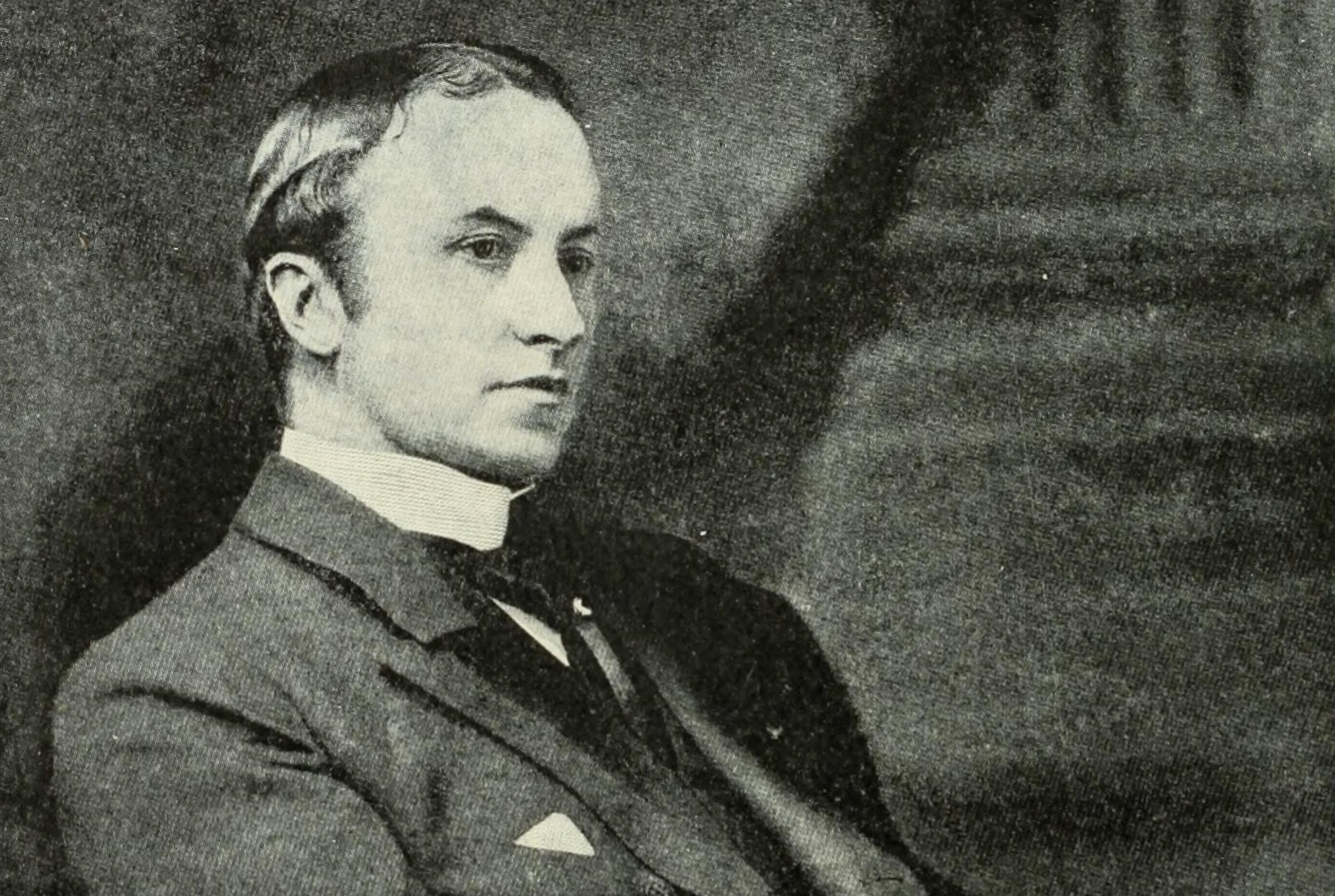 Internet Archive Book Images, Wikimedia Commons
Internet Archive Book Images, Wikimedia Commons
17. There Was A Power Imbalance
No man had ever captured Mary’s attention like George Curzon, but red flags were obvious from the start. For one, he was 11 years older than her, and thus in his 30s while she was just beginning her 20s. For another, he was a sharp, even severe, and ambitious man who worked himself to the bone, and who was often away on Parliamentary engagements.
Only, that wasn’t all.
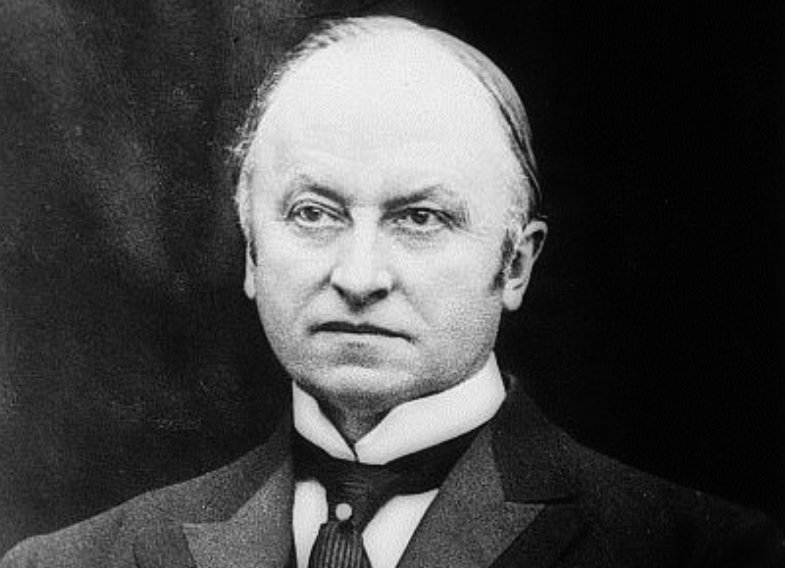 George Grantham Bain Collection (Library of Congress), Wikimedia Commons
George Grantham Bain Collection (Library of Congress), Wikimedia Commons
18. He Had A Bad Reputation
It wasn’t just that George was a somewhat harsh and busy man—he was also far more experienced than Mary in matters of romance. Women had always been attracted to him, but that wasn't the most unsettling part. He had also gained a reputation for “waylaying society girls in corridors, woods, and trains”.
For all George’s exclamations of love at first sight, then, Mary was in dangerous waters.
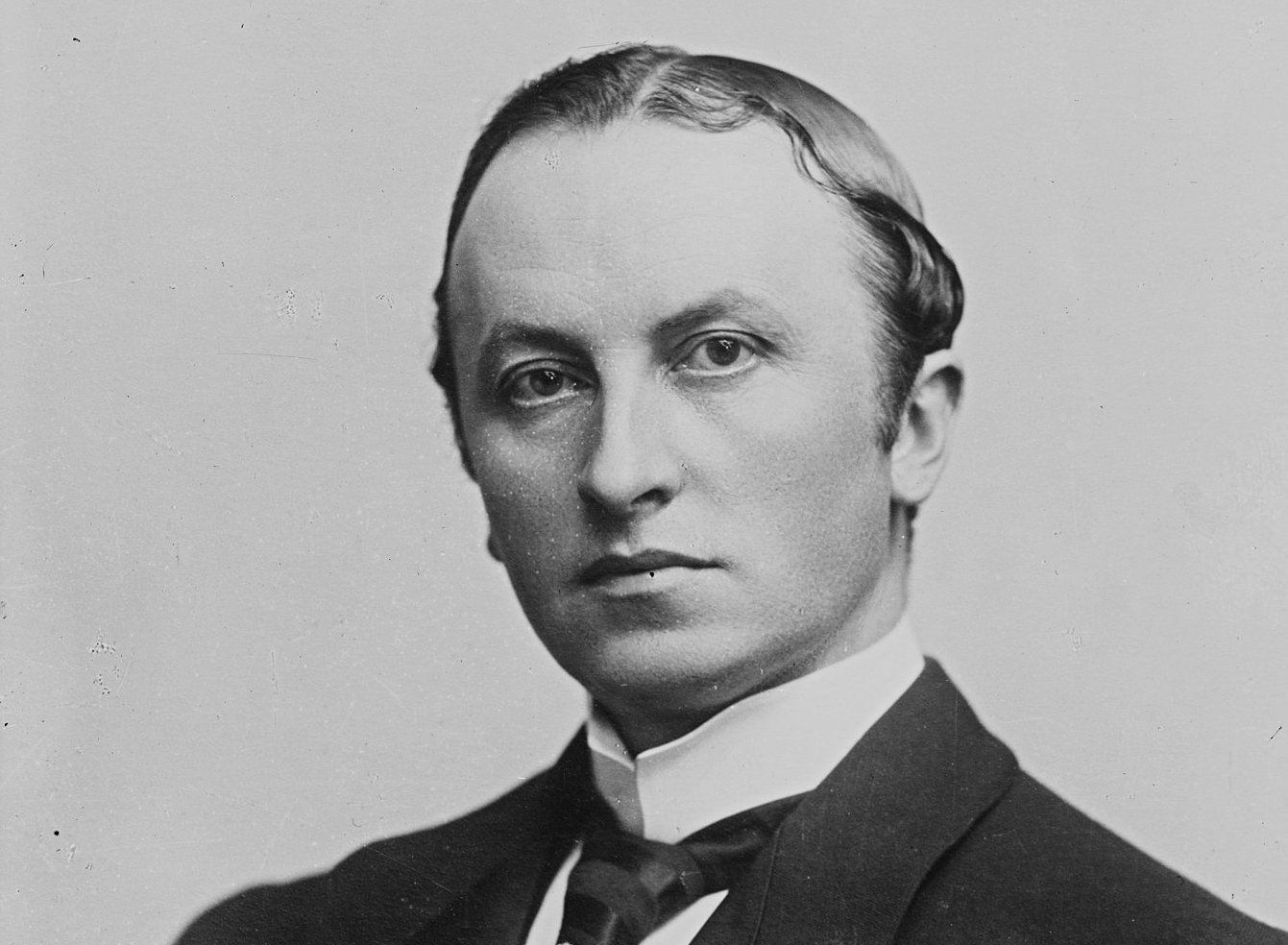 Bain News Service, Wikimedia Commons
Bain News Service, Wikimedia Commons
19. He Made Her Wait
Instead of a swift fairy tale, Mary got a frustrating, painful wait: George continued his work and his travels, and his emotions about Mary seemed to wane over the next few months as he concentrated on British business. Meanwhile, all Mary’s family could see she was pining away.
But Mary knew what she wanted, and she wasn’t about to let go.
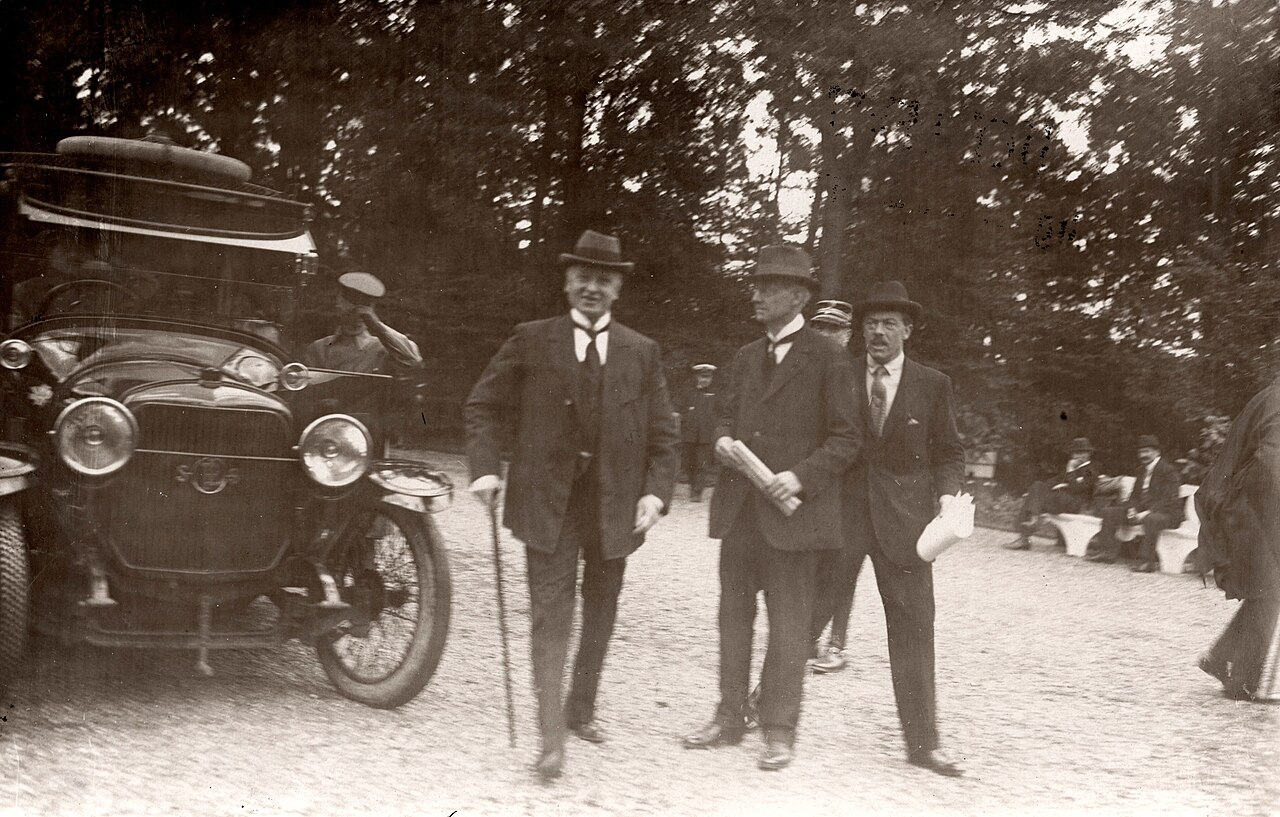 Unknown Author, Wikimedia Commons
Unknown Author, Wikimedia Commons
20. She Went Lovesick
Three years passed since Mary’s first meeting with George, and she showed her devotion in increasingly insistent ways. Although she had plenty of suitors, she always rejected them, knowing that now that she had met George Curzon, no man would ever match him as a husband. Then she went one step further.
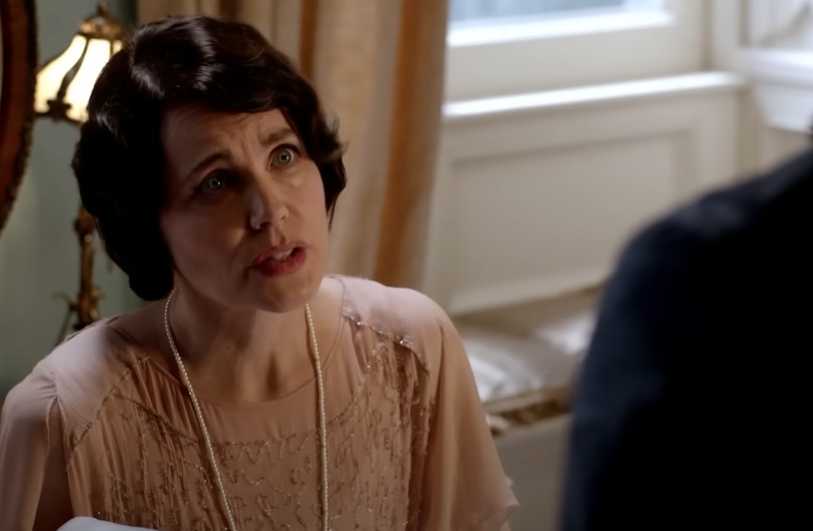 Carnival Film & Television, Downton Abbey (2010-2015)
Carnival Film & Television, Downton Abbey (2010-2015)
21. She Confessed It All
Eventually, able to wait no longer, Mary organized a meeting with George—finally back from one of his trips—and she confessed everything. She held nothing back, and essentially told him it was him or no one. His response was almost everything she hoped for: George, his passions inflamed once more, told her he felt the same way. Yet there were road blocks still in their way.
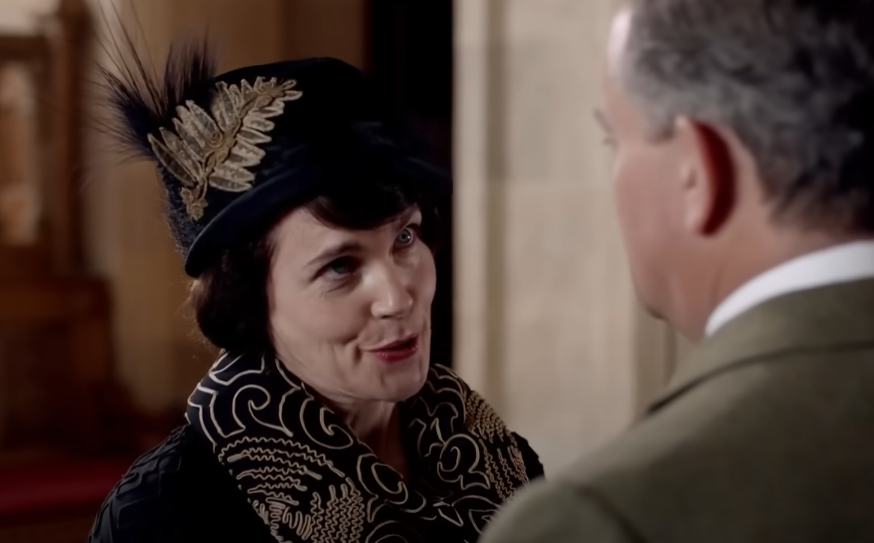 Carnival Film & Television, Downton Abbey (2010-2015)
Carnival Film & Television, Downton Abbey (2010-2015)
22. The Timing Was Off
Although Mary was once more at the top of George’s mind, he had one fear. He was still due to make several long trips in the coming year or more, and he didn’t think it was appropriate to do these voyages while married, with a wife at home. Even so, they were young and in love.
That’s when they made a scandalous plan.
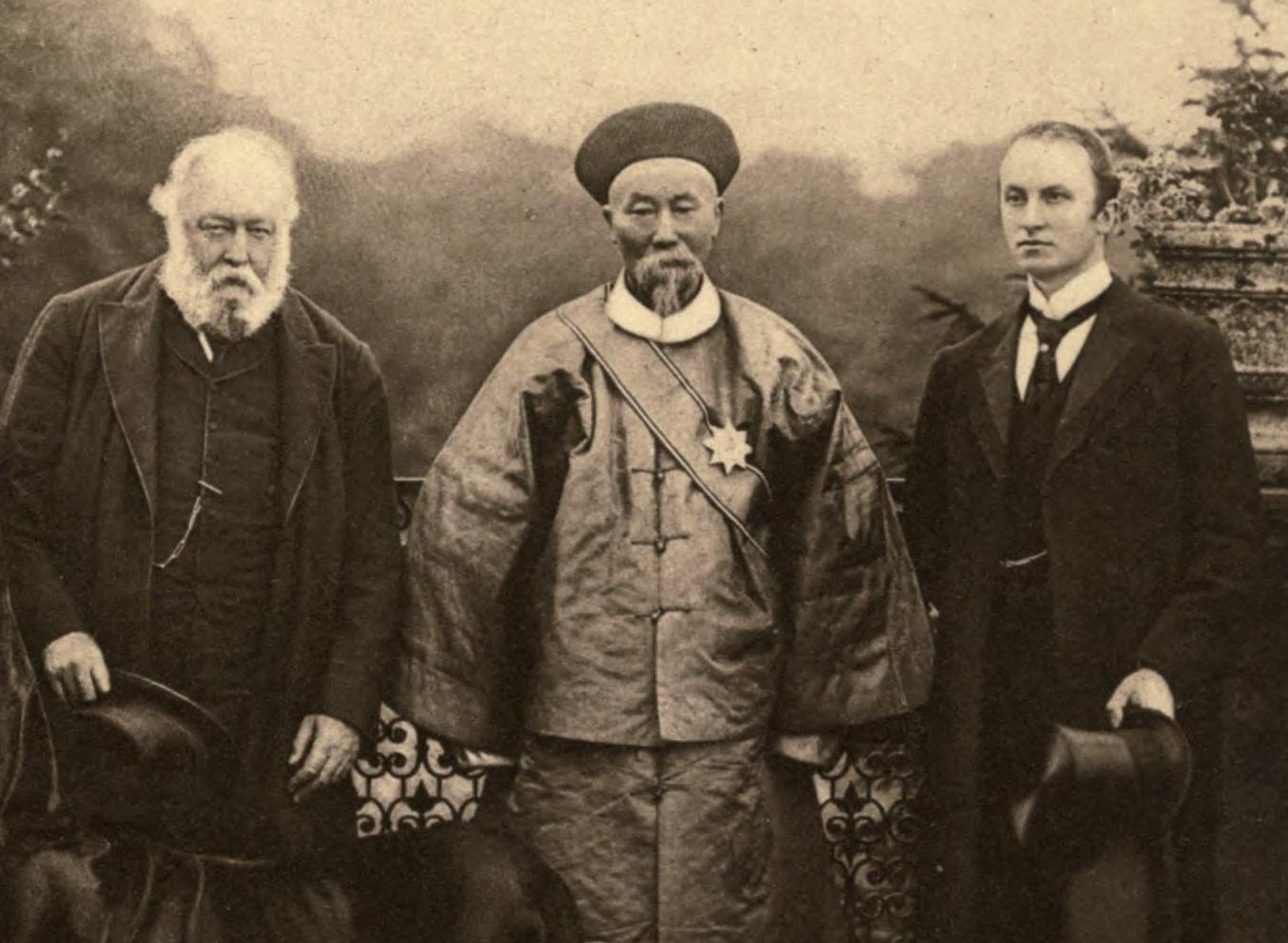 W. & D. Downey, Wikimedia Commons
W. & D. Downey, Wikimedia Commons
23. She Kept An Enormous Secret
In the face of these difficulties, Mary and George agreed to become engaged in total secrecy—though even this had strings attached. The engagement was, George wrote, “on the understanding that I should be at liberty to complete my task before we took the final step”. Meanwhile, Mary pledged that if George didn’t make it back from his travels, she would never marry.
In a trend that would follow them for the rest of their lives, George was surely getting the better end of the deal. In fact, that was his intention.
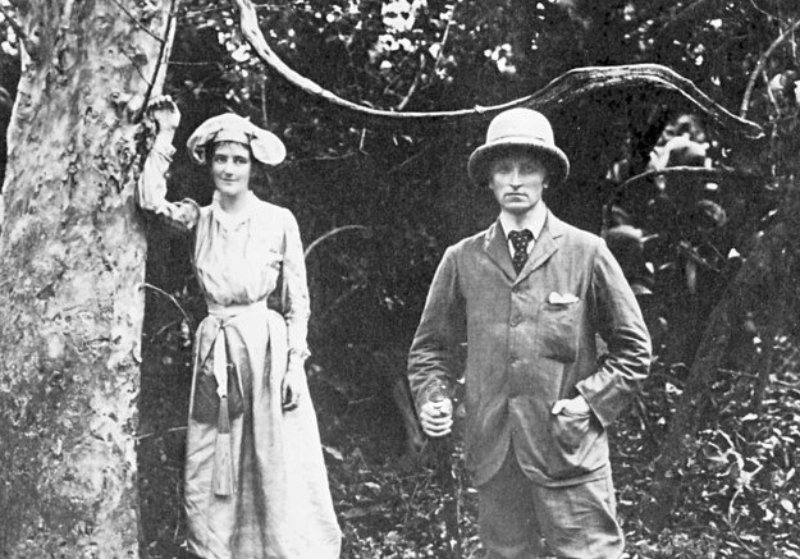 Unknown Author, Wikimedia Commons
Unknown Author, Wikimedia Commons
24. She Had To Sacrifice Everything
In George Curzon, Mary was connecting herself with an eminently respectable, intelligent man whom she clearly adored. But her love came with a high price. George explicitly expected Mary to always take a back seat to him.
As he once said, “Give me a girl who knows a woman’s place and does not yearn for trousers. Give me in fact Mary”. Mary, for her part, was happy to concede…but she would pay for it.
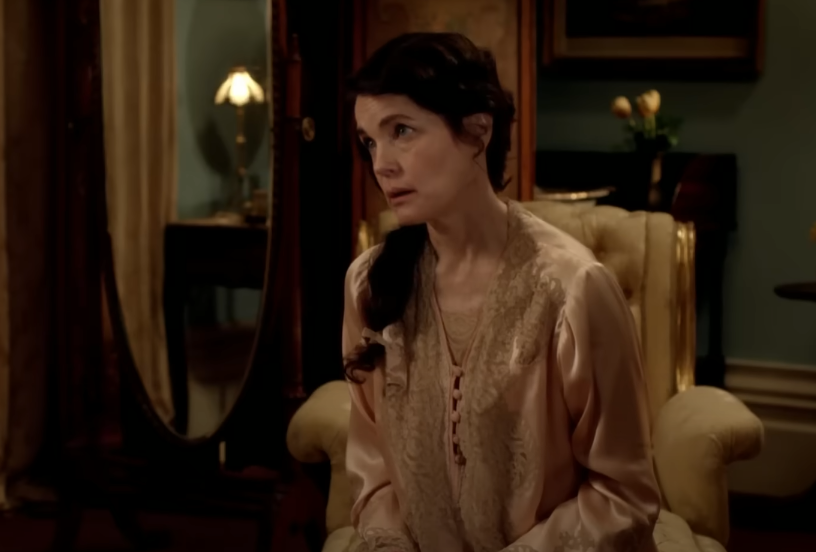 Carnival Film & Television, Downton Abbey (2010-2015)
Carnival Film & Television, Downton Abbey (2010-2015)
25. She Almost Never Saw Her Fiancé
As romantic as their secret engagement appeared to Mary and George, it was also an agonizing prospect. They had already had a long, distant courtship before their engagement, and they now entered two years with almost no contact with each other. By the eve of their wedding, they had met for just two days and a handful of other hours.
Nonetheless, they slowly made their engagement public, and that wedding did come.
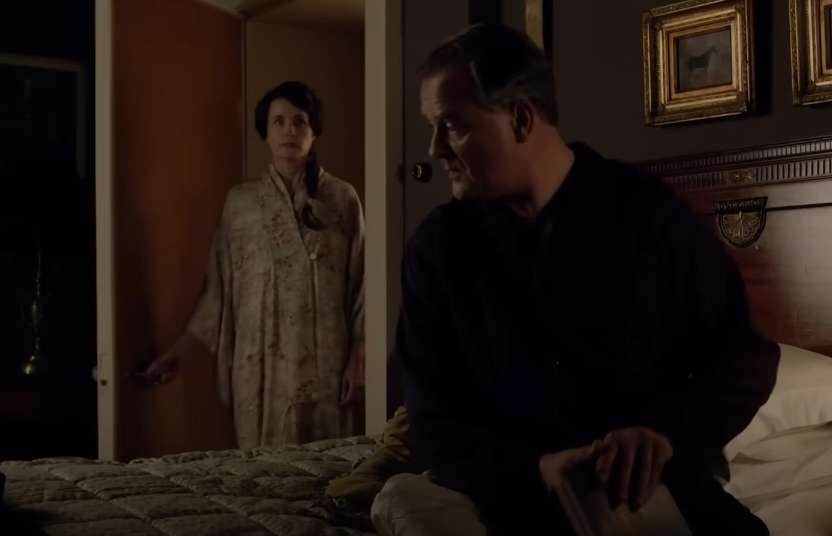 Carnival Film & Television, Downton Abbey (2010-2015)
Carnival Film & Television, Downton Abbey (2010-2015)
26. Her Wedding Was A Society Dream
Although the President couldn't attend George and Mary’s wedding, his First Lady could—the union, after all, took place just across from the White House on Lafayette Square. Mary wore lace-trimmed white satin, a glittering coronet of diamonds, and a veil that fell across her dark hair as she walked down the aisle.
She was a picture-perfect bride, but she was about to realize she didn’t have a picture-perfect marriage.
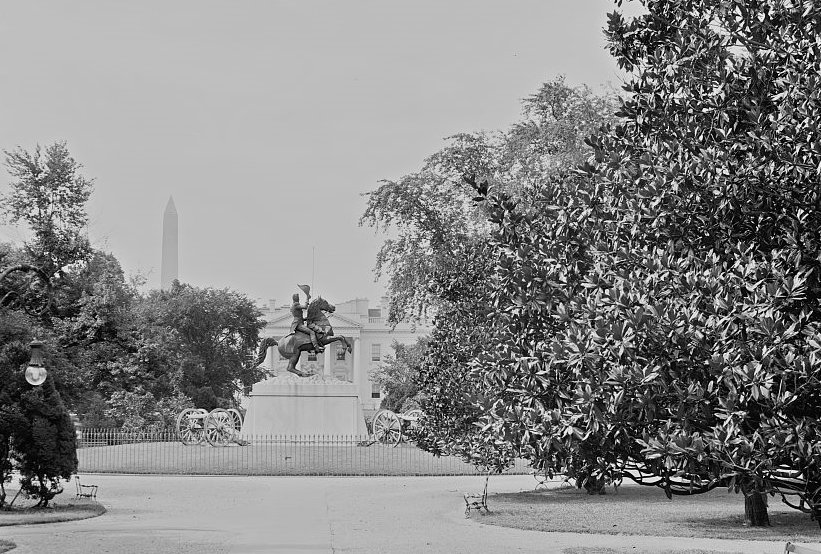 Library of Congress, Wikimedia Commons
Library of Congress, Wikimedia Commons
27. She Changed For The Worse
Shortly after the wedding, Mary’s friends began to notice disturbing signs in her. Although she had always been serious, she now became entirely dour under her new name of Mrs Curzon. Some who had known her best, including famed socialite Consuelo Vanderbilt, thought Curzon’s British stiff upper lip and demands for submission had taken all the light out of Mary’s brilliant American ways.
Mary herself was also about to get a rude awakening.
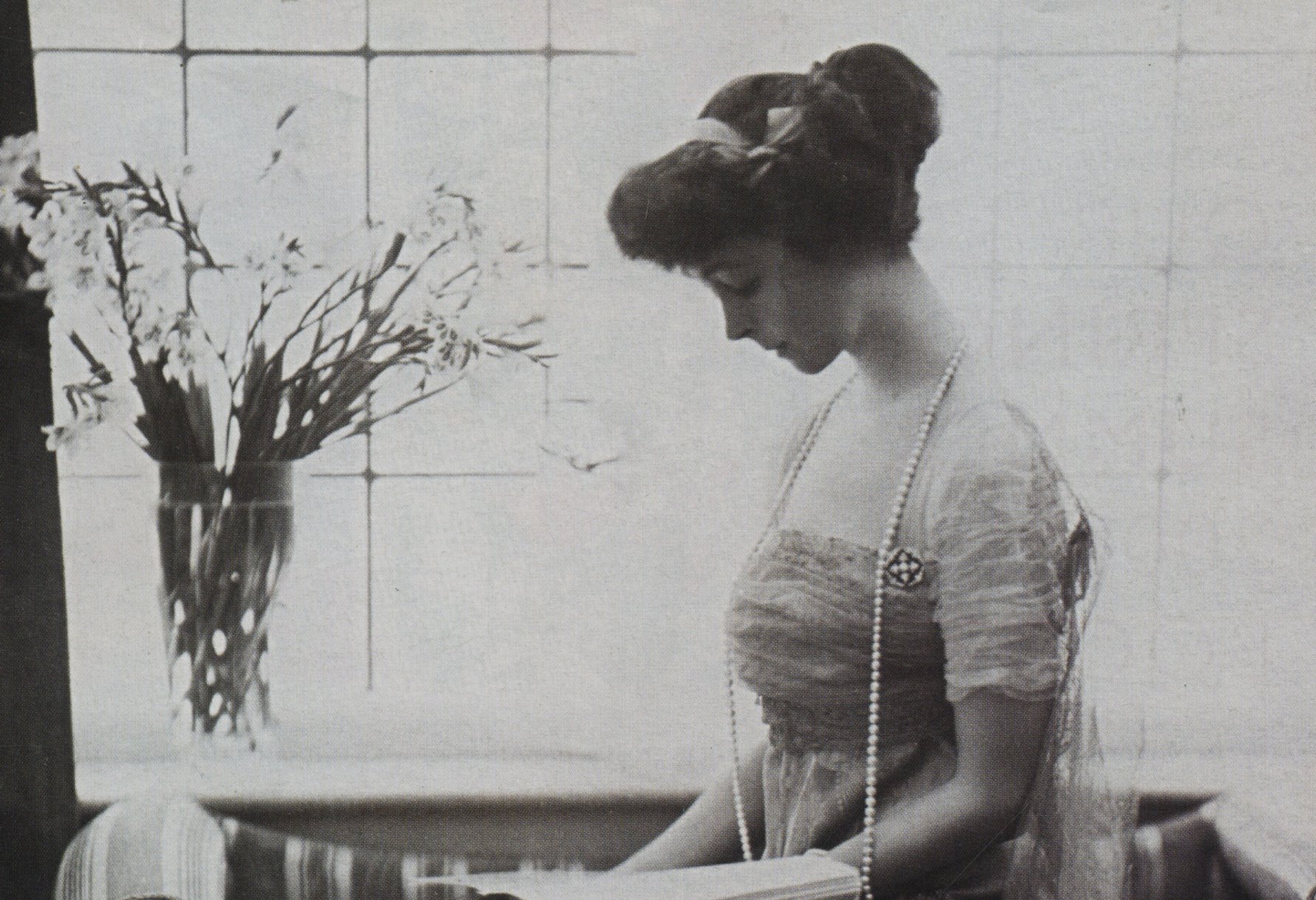 Unknown Author, Wikimedia Commons
Unknown Author, Wikimedia Commons
28. Married Life Wasn’t What She Thought
Despite her travels in Europe, Mary had still been used to brash American ways and brash American money. So she was aghast to find that though her husband had a British title, he also had starkly empty coffers.
In her new household, she found herself haggling over produce with market vendors in an attempt to keep costs down. Yet still, all this effort led to disaster.
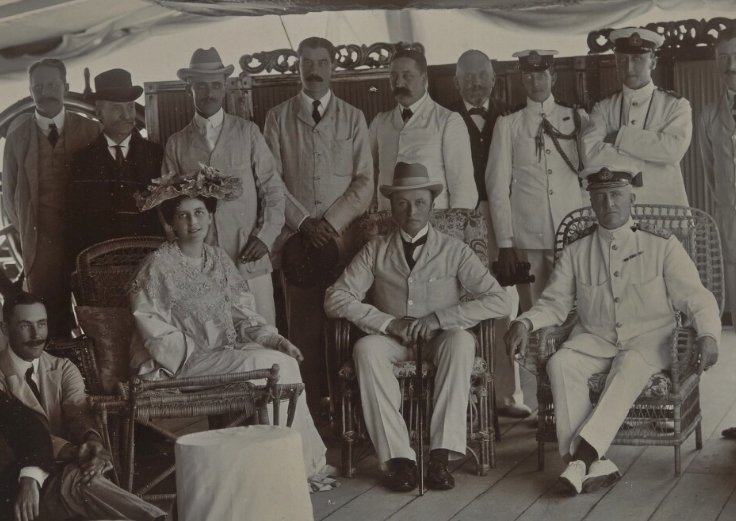 Qatar Digital Library, Wikimedia Commons
Qatar Digital Library, Wikimedia Commons
29. She Had A Disastrous Dinner Party
As Mrs Curzon, Mary desperately wanted to impress George’s friends as a host. Her first impression failed miserably. She held her first formal dinner party amidst messy tables, confusion in the kitchen, and ultimately “extraordinarily nasty” food.
It was a crushing disappointment—and she was about to find out that she had few friends to turn to.
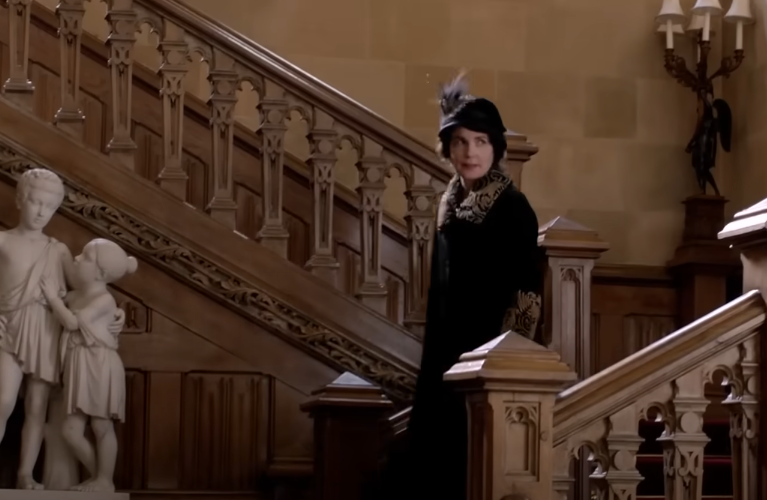 Carnival Film & Television, Downton Abbey (2010-2015)
Carnival Film & Television, Downton Abbey (2010-2015)
30. Women Hated Her
Although Mary had been quite literally the belle of the ball before, she found life as a married woman in London immensely lonely. Londoners—particularly of the eligible female variety—felt annoyed that George had chosen an American woman, just as her friends stateside felt annoyed she’d chosen a Brit.
Suddenly, Mary found herself socially isolated. “My path is strewn with roses,” she once wrote, “and the only thorns are the unforgiving women”. Except there were lots of other thorns coming.
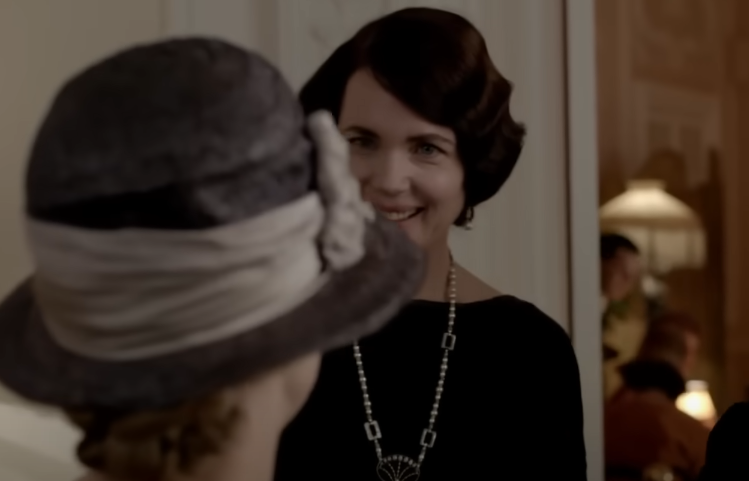 Carnival Film & Television, Downton Abbey (2010-2015)
Carnival Film & Television, Downton Abbey (2010-2015)
31. She Disliked “Common” People
Appointed Under Secretary of State at the Foreign Office shortly after their wedding, and then Privy Councillor not long after that, George rose in political power—and Mary’s life plummeted. She privately despised the commonness of his constituents, even as she liked being a high-ranking Parliament wife, and her letters home from this time openly speak of her heartbreak.
Nevertheless, Mary had no idea how bad things could still get.
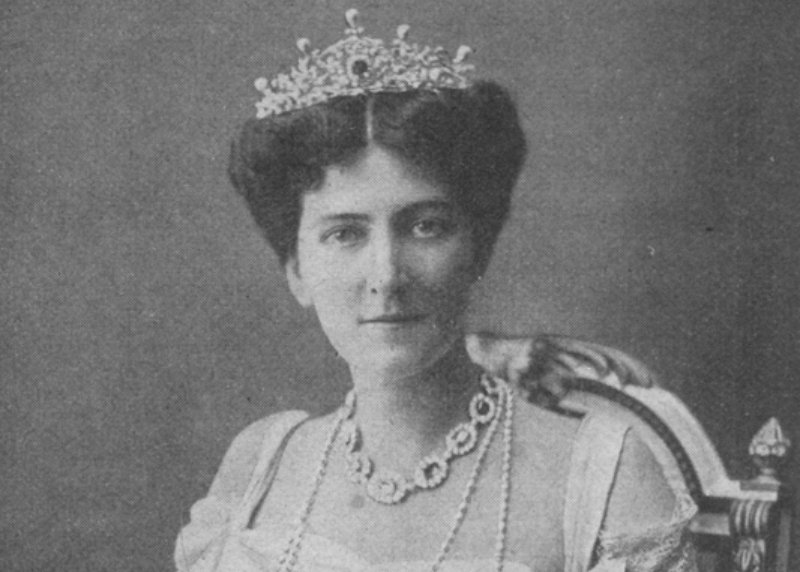 Unknown Author, Wikimedia Commons
Unknown Author, Wikimedia Commons
32. She Went Through A Medical Emergency
Mary did her wifely duty and was soon pregnant after her wedding. Then it took a terrifying turn. On Christmas Eve 1895, she began having labor symptoms, and the newlyweds were certain that the baby would come prematurely and likely perish. They had to call in a doctor quickly, and he managed to avert the crisis.
Mary’s eldest daughter Mary Irene was born several weeks later in January—though this news wasn't received with as much joy as you’d imagine.
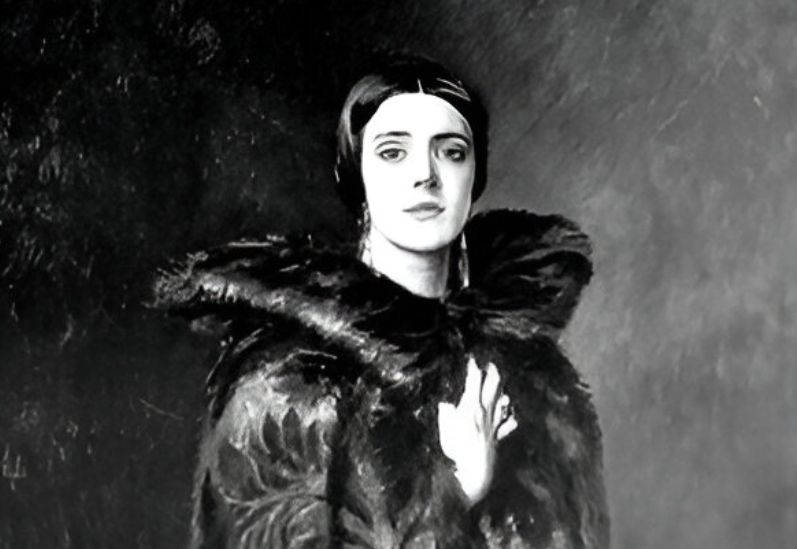 William Bruce Ellis Ranken, Wikimedia Commons
William Bruce Ellis Ranken, Wikimedia Commons
33. She Couldn’t Give Her Husband What He Wanted
Despite this first scare, Mary was soon pregnant again. This time, the baby had little trouble—but there was another problem entirely. It was another daughter, whom they named Cynthia, and this put George Curzon in a difficult position. As a traditional man, he desperately wanted a male heir, and instead he now had two girls.
If Mary expected much comfort from her husband on this matter, she was sorely mistaken.
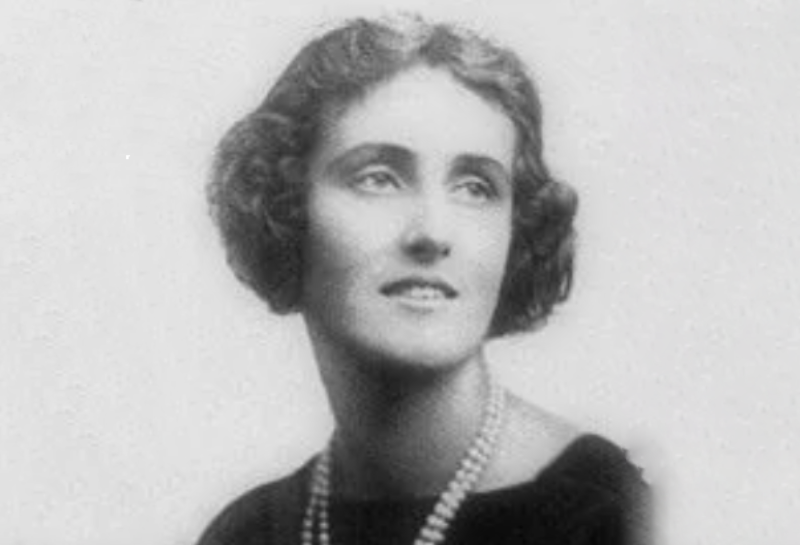 spartacus-educational.com, Wikimedia Commons
spartacus-educational.com, Wikimedia Commons
34. He Abandoned Her
The truth was, George wasn’t around to do much of anything with his wife. He had now turned into a full-blown workaholic, leaving Mary lonely and abandoned most of the time. George’s insistence that he never take Mary, a flighty woman, into his confidence about his work only further underlined this isolation.
Though the dutiful Mary never told her husband of her pain, she did once complain elsewhere: “He sits and sits at those Foreign Offices boxes until I could scream!”
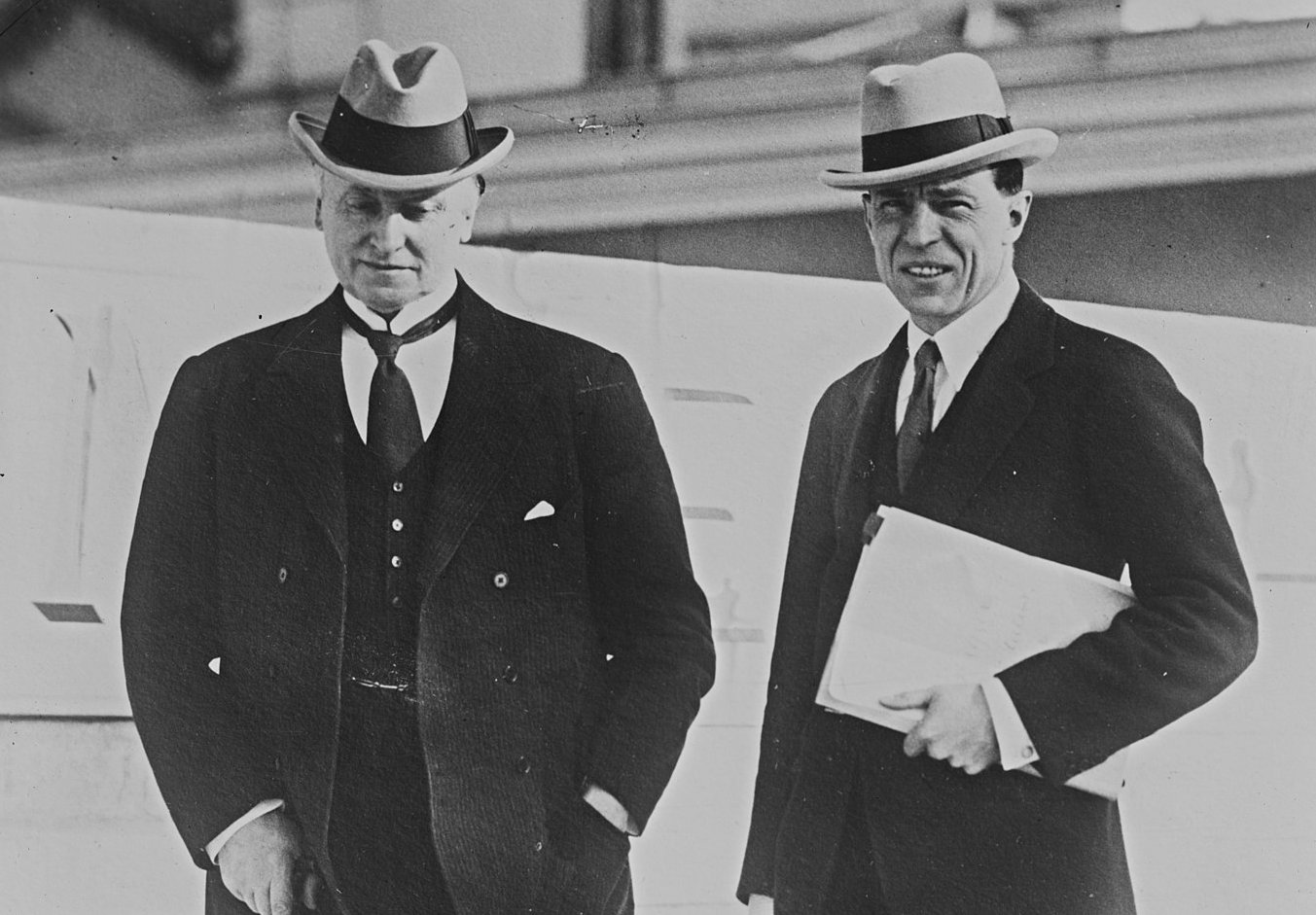 Bain News Service, Wikimedia Commons
Bain News Service, Wikimedia Commons
35. She Became Unwell
Around this time, Mary began suffering from troubling symptoms. Near friendless and despondent, she started getting headaches that would hound her for the rest of her life, and lost weight on her already reedy frame. She was no longer the vibrant debutante, and now barely found the strength to leave her house.
It looked like Mary Curzon was about to dwindle into a historical footnote. Until the most important event of her life happened.
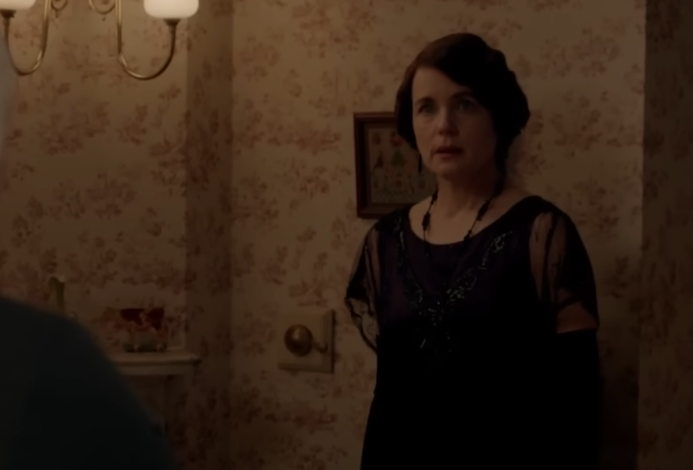 Carnival Film & Television, Downton Abbey (2010-2015)
Carnival Film & Television, Downton Abbey (2010-2015)
36. She Was Thrust Into The Spotlight
In 1898, three years into the marriage, George Curzon became the Viceroy of India, an extremely high-ranking position in a colonial, Imperialist Britain. Suddenly, Mary’s quiet life was torn to shreds, as she became one of the most envied and watched women in the country.
“We begin to be treated like grandees,” she wrote, “Stationmasters always meet us, carriages are reserved”. But that was just the beginning.
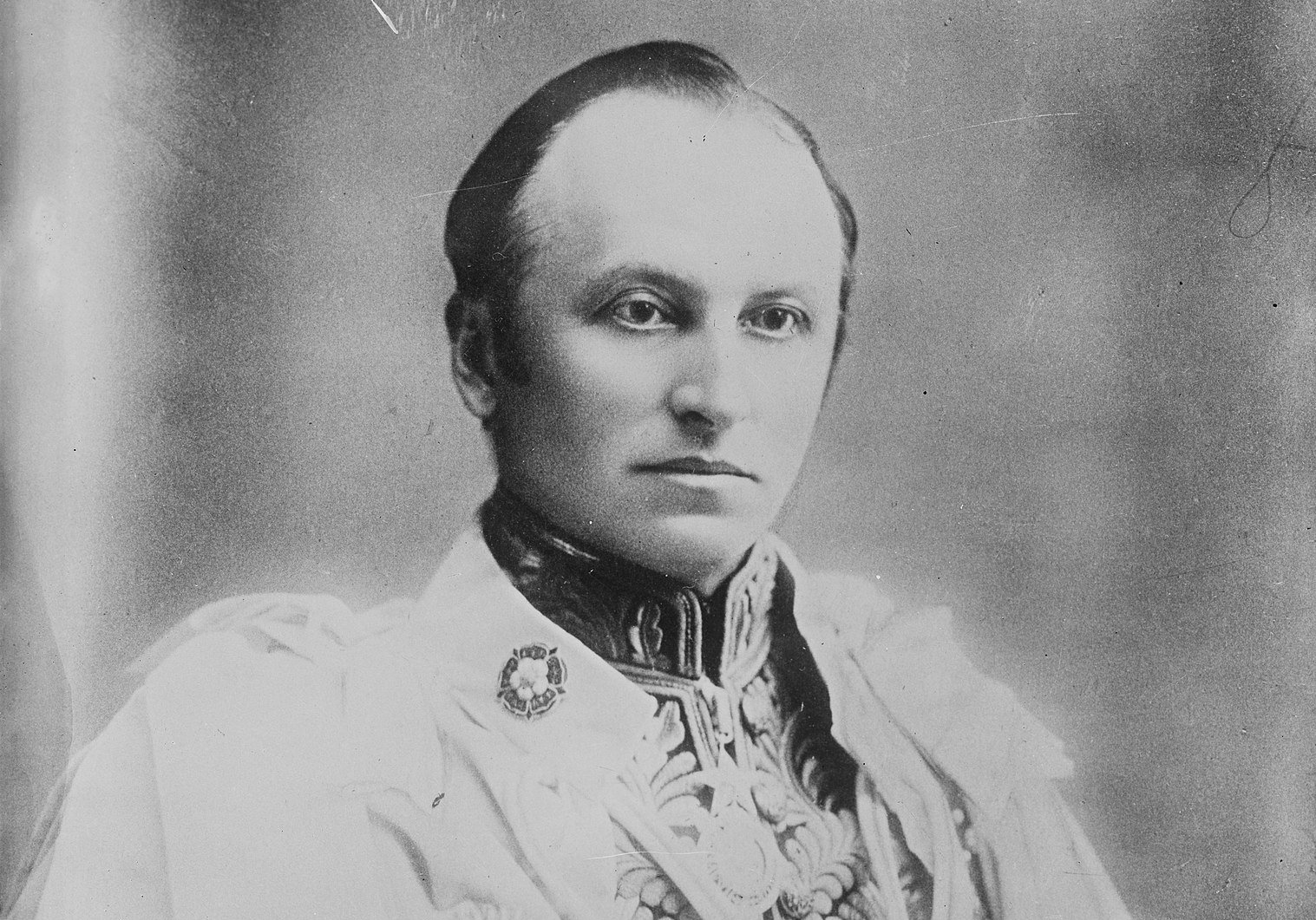 George Grantham Bain Collection (Library of Congress), Wikimedia Commons
George Grantham Bain Collection (Library of Congress), Wikimedia Commons
37. She Suffered Culture Shock
When Mary, George, and their young family arrived in India, they experienced the usual cultural shock, especially in regards to the vastly un-English, rambling property where they now lived. Then Mary got a true jolt. The house gardens were overrun with civet cats, and Mary once woke up to the wild animal drinking milk from her bedside table.
Still, it was the humans she really had to worry about.
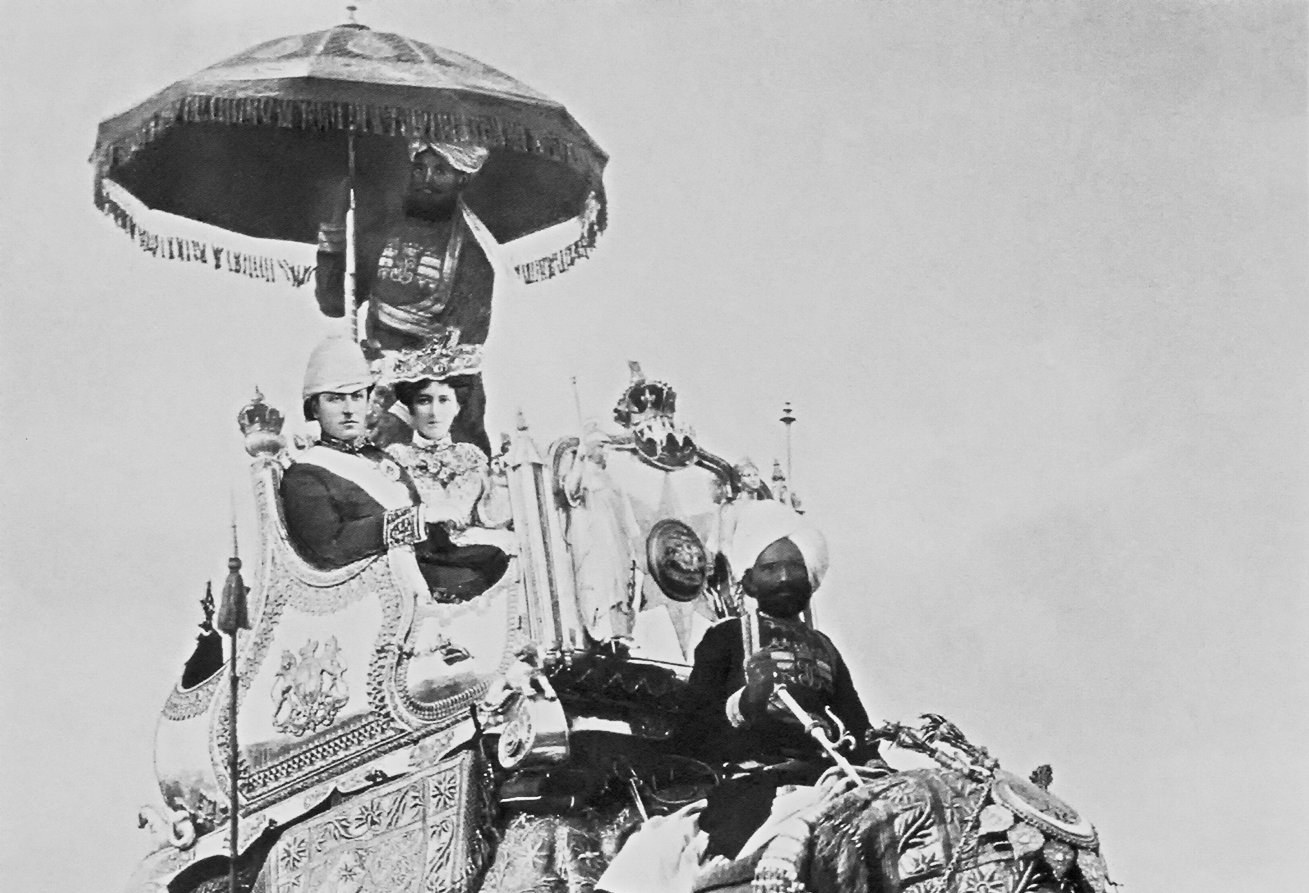 Unknown. Bourne&Shepherd, Wikimedia Commons
Unknown. Bourne&Shepherd, Wikimedia Commons
38. She Was Isolated
In India, the British insisted on strict protocols around the Viceroy and his Vicereine, and Mary was again exposed to painfully few people. In her day-to-day life, the people she met were either one of her husband’s employees, or family to these employees. At the many formal dinners, the seating rules were so rigid that she often had to sit beside the same man night after night.
She may have thought India would be a good reset, but soon enough, Mary was once more deeply unhappy with the isolation and cultural differences in India. However, she did have some consolations.
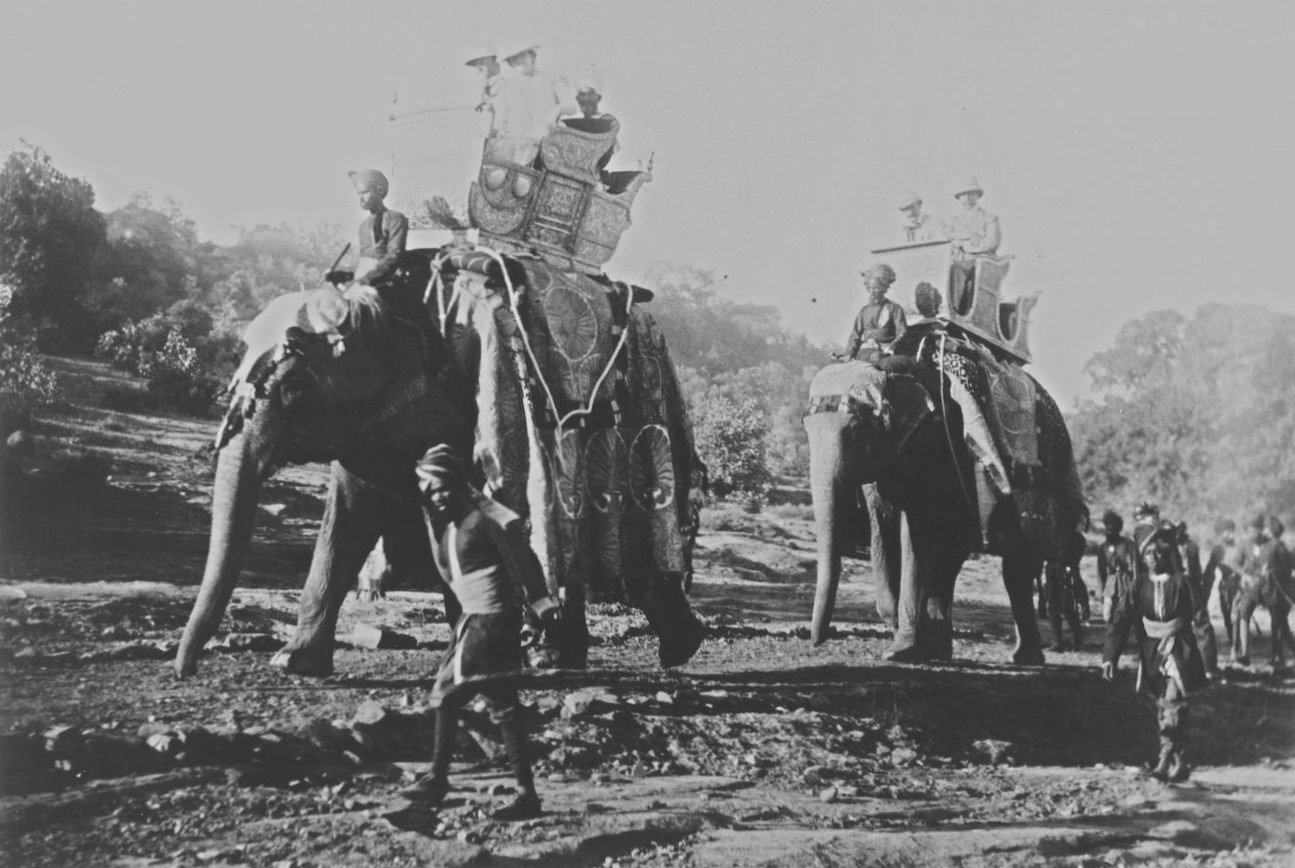 Lala Deen Dayal, Wikimedia Commons
Lala Deen Dayal, Wikimedia Commons
39. She Wore A Famous Dress
In 1902, Mary and George participated in a celebration of King Edward VII’s coronation, throwing a lavish ball that had Mary wearing a future piece of fashion history. Her now famous “peacock dress” had gold stitching, embroidered peacock feathers, and blue-green beetle wings. It now sits in display at the Curzon estate.
But these gilded comforts could only go so far.
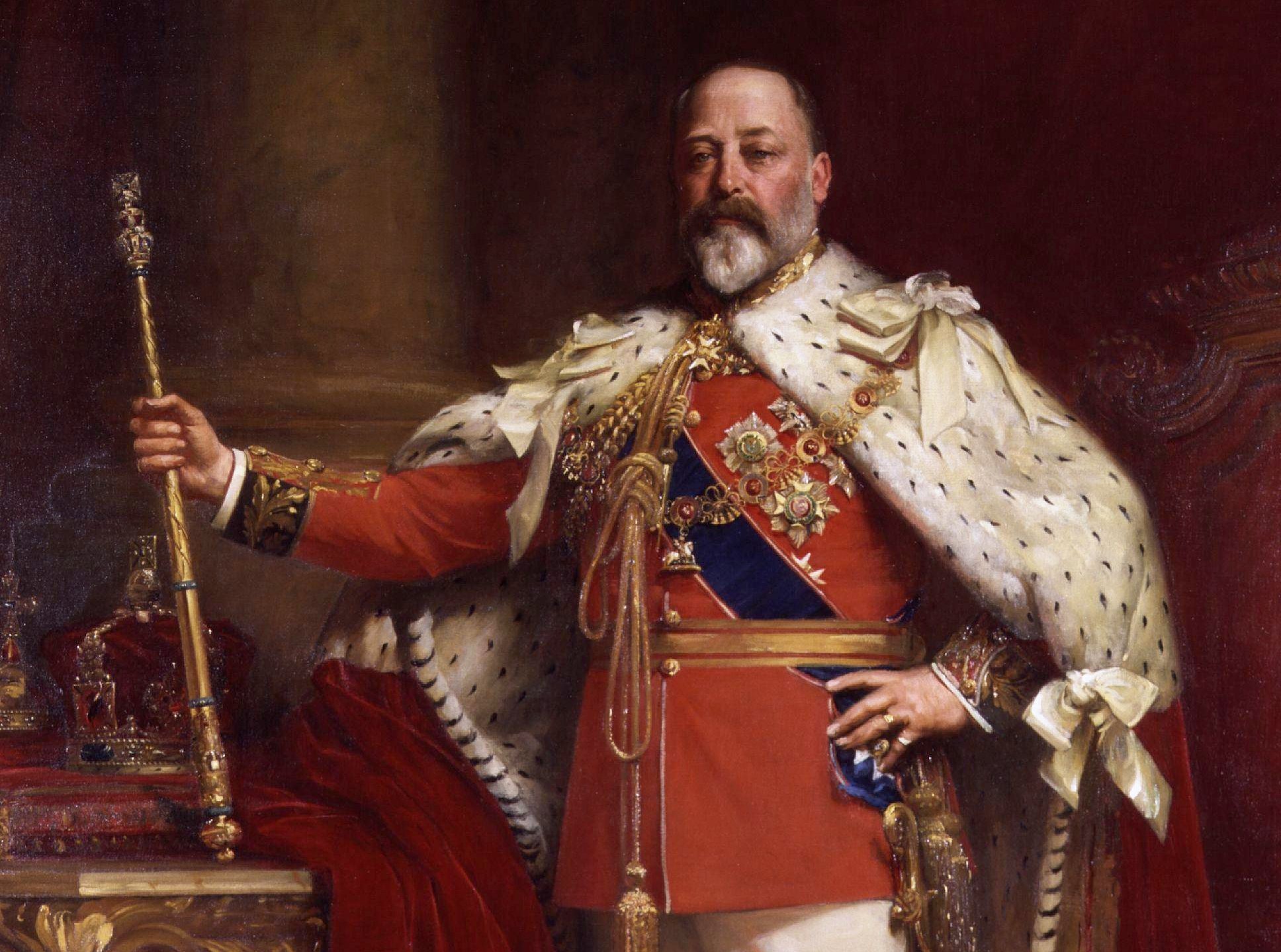 Luke Fildes, Wikimedia Commons
Luke Fildes, Wikimedia Commons
40. Her Health Worsened
It wasn’t long before both Mary and George were in bad shape in India. Mary tried in vain during George’s tenure as Viceroy to curb his need to work at all times, but it was as useless as it had ever been. She was somehow worse. Her headaches appeared to grow even more intense, and turned into bona fide sickness: In 1903, Mary had a reaction that left her “flat on [her] back” for a month.
She also had a new problem emerging.
41. She Fled Back To Britain
Just as Mary was experiencing these acute health issues, she was also pregnant again. Concerned for her well-being, she and George planned to have her go back to England to have the child—but George’s relentless ambition threw a wrench in that too. Although his term as Viceroy was up, George was insisting on a second term in India, something no Viceroy before him had ever done.
Once more, it was Mary who became the victim in this.
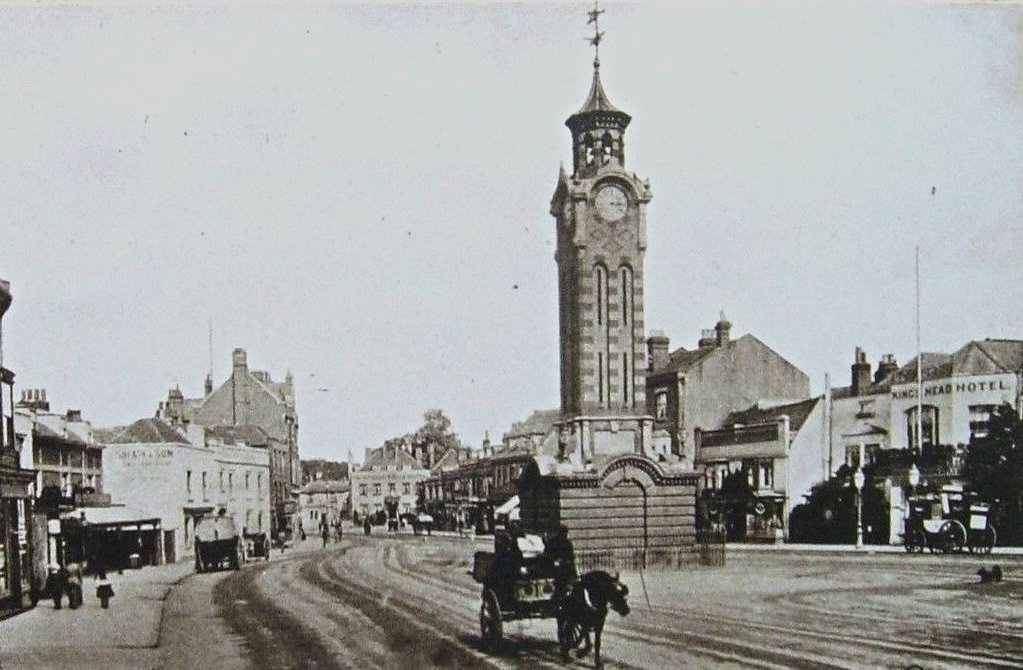 Aussie~mobs, CC BY-SA 2.0, Wikimedia Commons
Aussie~mobs, CC BY-SA 2.0, Wikimedia Commons
42. She Got Another Disappointment
After much finagling, Mary went back to England in 1904 in January, while George joined her in May. Yet it was to be a brief visit—they were due back in India that September. Amidst this stress, she gave birth to yet another girl named Alexandra, though everyone they knew from India called her Baba or “Baba Sahib” for “Viceroy’s baby”.
As joyous as the birth of her third daughter was (for her, anyway), the next few months would become the most difficult time in Mary's life.
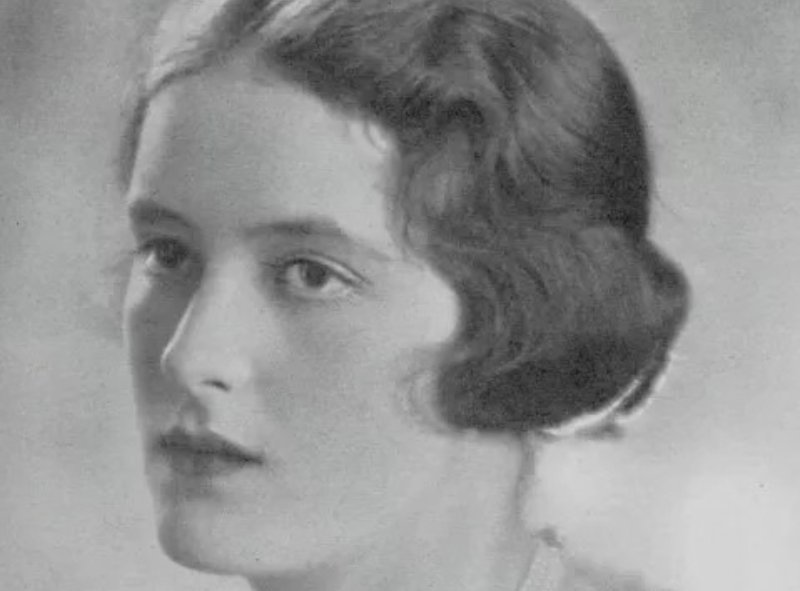 Cover of Country Life magazine, Wikimedia Commons
Cover of Country Life magazine, Wikimedia Commons
43. She Pushed Herself Too Far
Just weeks after giving birth to Alexandra, Mary suffered from a series of illnesses, and one acute tragedy. She was intermittently sick and plagued with headaches, and then that summer she got pregnant again—likely always in search of that boy—but had a miscarriage quickly after.
Incredibly, if unsurprisingly, none of this deterred her and George’s plans to head back to India, regardless of what Mary’s body was saying. But she would soon pay the price for pushing things too far.
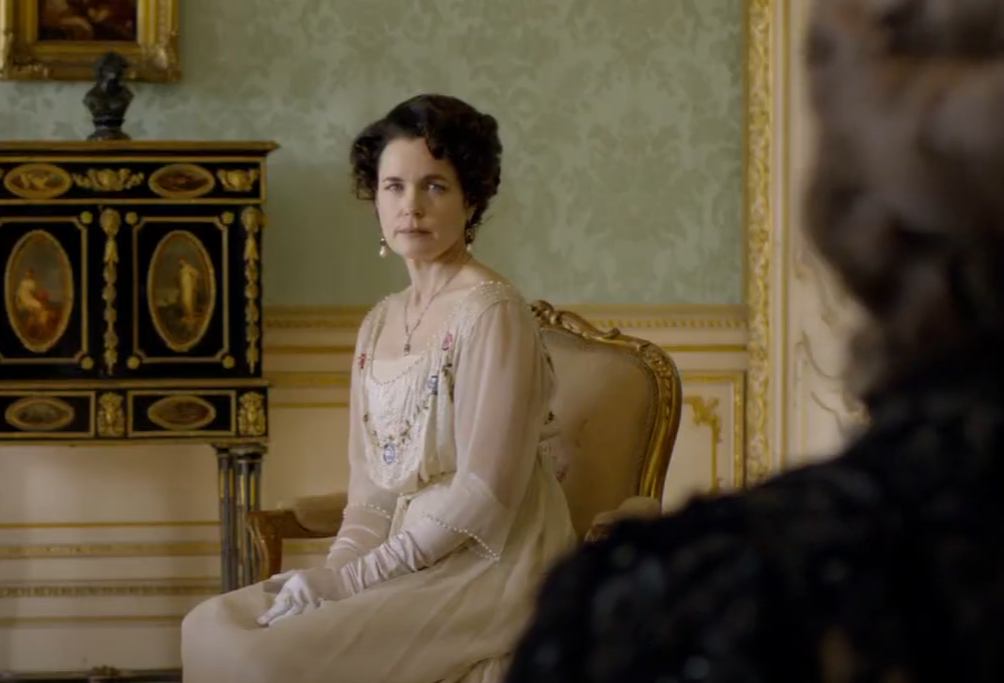 Carnival Film & Television, Downton Abbey (2010-2015)
Carnival Film & Television, Downton Abbey (2010-2015)
44. She Became Really Sick, Really Fast
Days before they were due to head back to India, Mary underwent a shocking transformation. After a drive along the country one day, Mary fell into an illness so dire, she was slipping in and out of coma within hours, and was near death by nightfall. Operations on her only seemed to make matters worse, and doctors began to tell George he should expect to bury his wife shortly.
45. She Was Near Death
Although no one could pinpoint exactly what was wrong with Mary, it was likely a number of things converging on her stressed body, among them an after-effect of her miscarriage and an infection she may have caught from bad plumbing. Moreover, it did not get better: After weeks, her condition had only become more critical, and George had to listen to her last wishes.
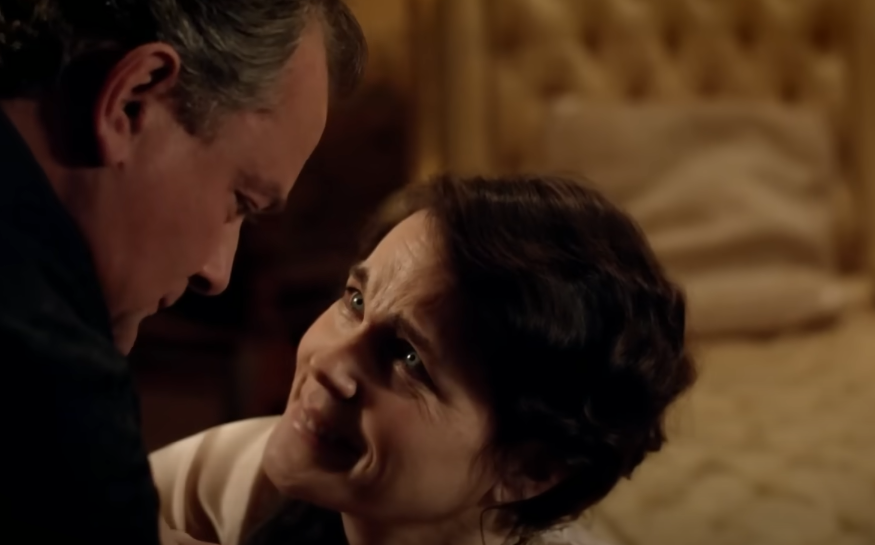 Carnival Film & Television, Downton Abbey (2010-2015)
Carnival Film & Television, Downton Abbey (2010-2015)
46. She Made One Last Request
On death’s doorstep, Mary made a gut-wrenching request of her husband. Although she and George had spent the most influential part of their lives as Viceroy and Vicereine of India, in her brief periods of lucidity at this time she begged him not to take their children back to India when she passed.
It may have shocked her husband—but nothing could prepare him for what happened next.
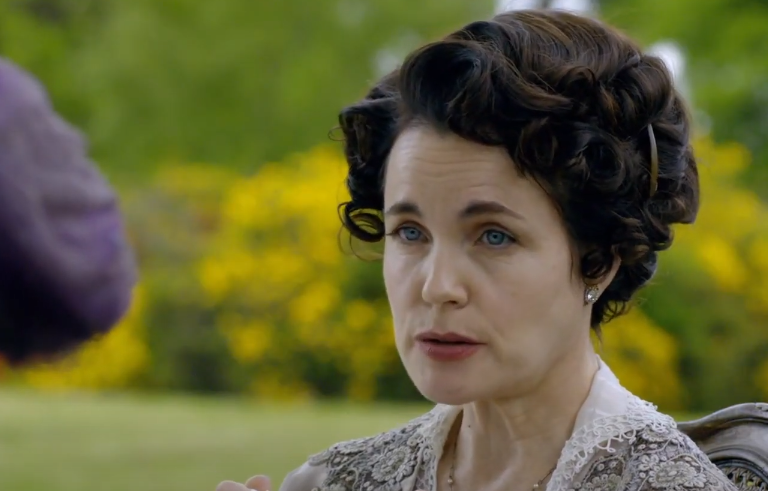 Carnival Film & Television, Downton Abbey (2010-2015)
Carnival Film & Television, Downton Abbey (2010-2015)
47. She Had A Miracle Turnaround
Against all odds, Mary somehow pulled through from this illness, and by the beginning of the autumn she was no longer on the brink, though she did require an intense amount of rest and steadiness. More than that, she was liable to relapse at any moment, with the illness coming on again as quickly as it had before.
Which makes George’s next decision all too heartless.
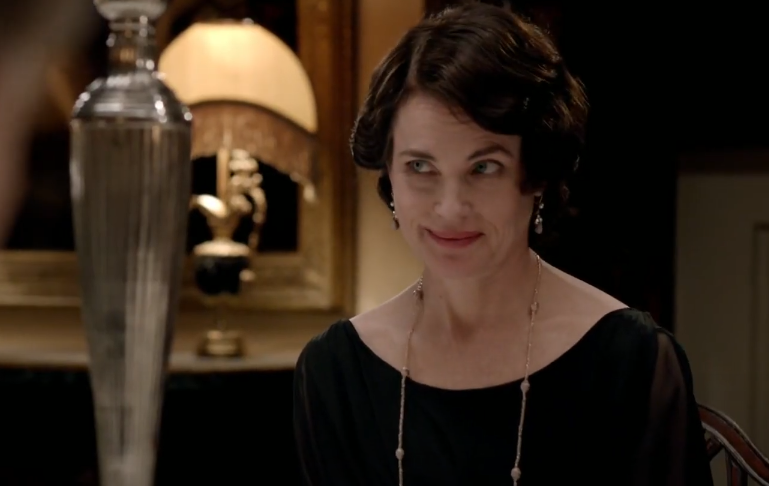 Carnival Film & Television, Downton Abbey (2010-2015)
Carnival Film & Television, Downton Abbey (2010-2015)
48. Her Husband Left Her
Throughout Mary’s long illness, George still had his position in India to think about, though he had delayed it when he thought she was dying. Now he made a chilling choice. Once more putting his work above everything else, even the woman he loved, he took his post back up in India and left Mary to convalesce alone.
But really, that wasn’t the worst part.
49. She Made A Brutal Decision
George Curzon likely believed that Mary would understand his “duty” to abandon her…and he was right. Mary didn’t just accept his leaving, she took it one unbelievable step further. When she was barely able to move around, and only with help, she wrote to George and told him she would join him in India shortly.
It would be one of the final grand gestures in her life.
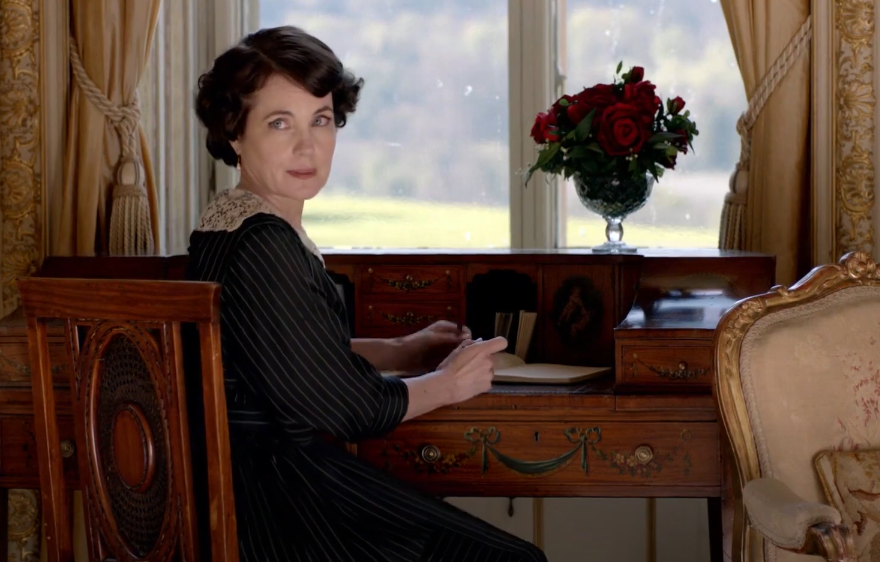 Carnival Film & Television, Downton Abbey (2010-2015)
Carnival Film & Television, Downton Abbey (2010-2015)
50. She Put Herself In Danger
Their return to India was literally disastrous. Soon after Mary arrived, an earthquake hit their locale and shattered the buildings around them, including the one they lived in. Indeed, it devastated the entire area, killing 1,500 people in the surrounding towns.
In the end, we could see it as an omen for what was to come.
51. Her Husband Was Forced To Resign
Mary and George were supposed to be in India until 1906—but fate had crueler plans. After unrest, (rightful) protests of British rule by Indian citizens, and George’s allies in parliament turning away from him, it became clear George had to resign.
He did so in the summer of 1905, and by that December they were on their way back to England, tail between their legs. But it only set the stage for a bigger downfall.
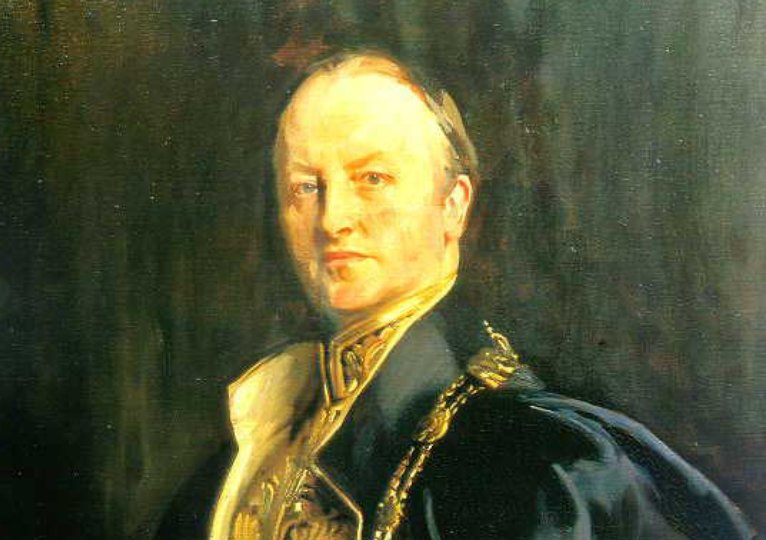 John Singer Sargent, Wikimedia Commons
John Singer Sargent, Wikimedia Commons
52. They Fell Far
By the time Mary arrived back on English soil, she was more ragged than ever, and disillusioned to boot. She had given up everything for George, even her own whims, and it amounted to less than nothing. When they landed, not one government official came to meet them.
Writing to her mother, she called returning to India a “great mistake” for both her and George, and confessed “I shall go out of my mind if I have to bear much more strain and worry”. Tragically, she couldn’t bear it.
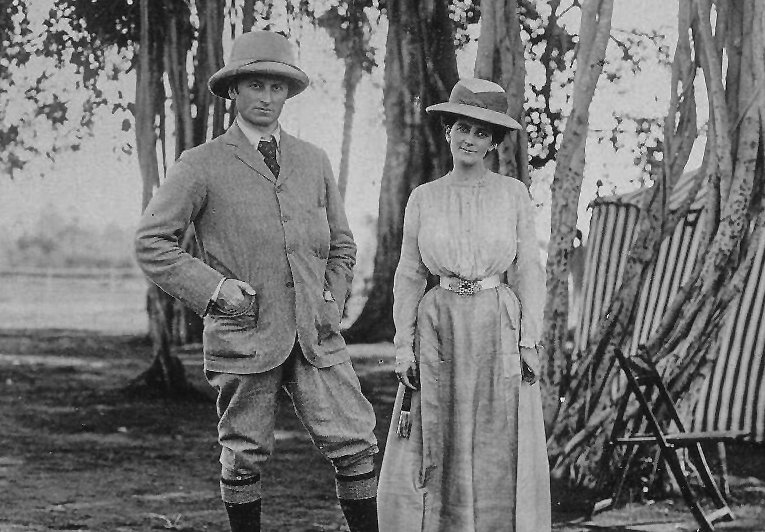 Ernst Stavro Blofeld, Wikimedia Commons
Ernst Stavro Blofeld, Wikimedia Commons
53. She Never Recovered
Mary, never completely healed, did try to finally rest now. It was just far too late. Illness hit her again and again in 1906, with influenza making a cough that “shook [her] bones to pieces” and other ailments causing her heart trouble. That summer, she wrote to her brother: “I sometimes fear and feel I shall never be well again”. And sadly, she was right.
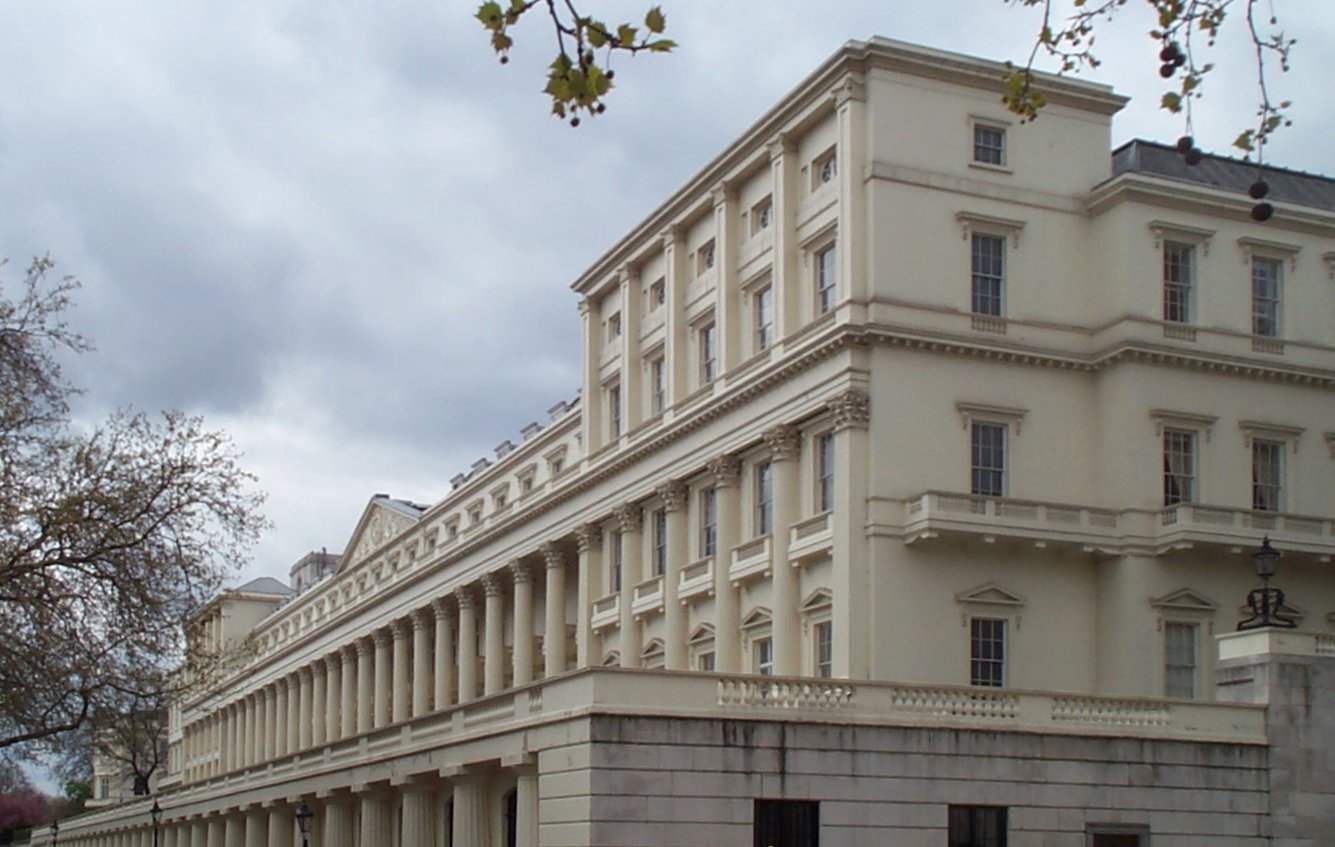 Kaihsu Tai, CC BY-SA 3.0, Wikimedia Commons
Kaihsu Tai, CC BY-SA 3.0, Wikimedia Commons
54. She Perished Without Warning
In a tragic irony, after years of illness and a prolonged, near-fatal infection, when Mary’s end came it was swift and unstoppable. On July 18, 1906, after a restless night and with very little hope left to fuel her, she suffered a fatal heart attack at 6 pm. Her husband was finally by her side.
With her steadfast, even harmful devotion to George, her diligent time as a colonial Vicereine, and her serious, often melancholy temperament, Mary Curzon’s legacy was nowhere near as simple as her quick end.
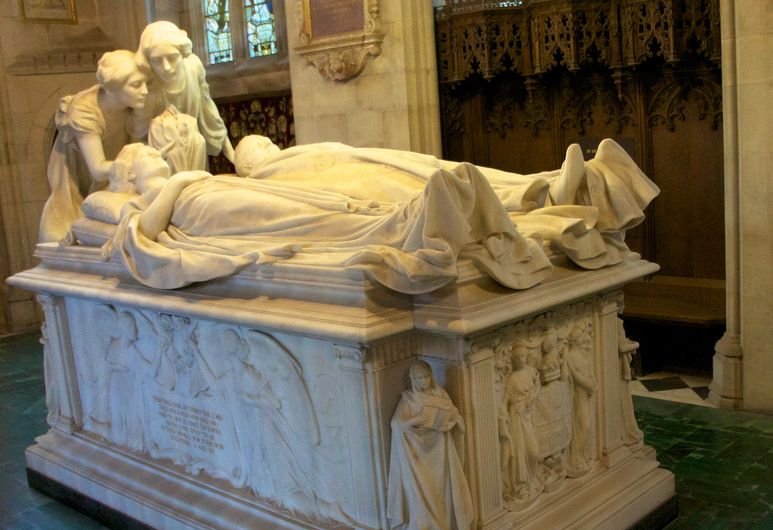 Bertram Mackennal, CC BY 2.0, Wikimedia Commons
Bertram Mackennal, CC BY 2.0, Wikimedia Commons
55. He Went On Without Her
Although Mary perished at the rock bottom of her husband’s career, she would likely have been delighted to know how he powered on and succeeded without her. George would go on to both claw back his career, becoming Foreign Secretary, and to remarry to society beauty Grace Duggan. In 1921, he even became a Marquess.
You May Also Like:
The Most Dangerous Woman In Tudor England
Gloria Vanderbilt Was Supposed To Live A Fairy Tale—It Turned Into A Horror Story
Painful Facts About Christina Onassis, The Tragically Rich Heiress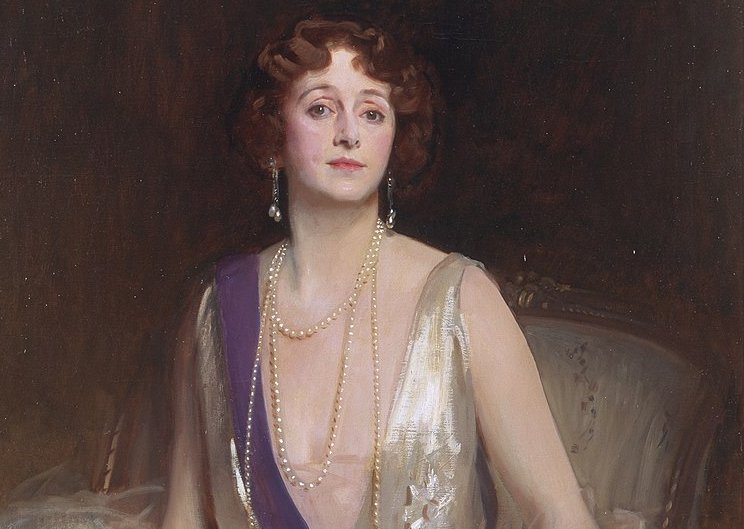 John Singer Sargent, Wikimedia Commons
John Singer Sargent, Wikimedia Commons

